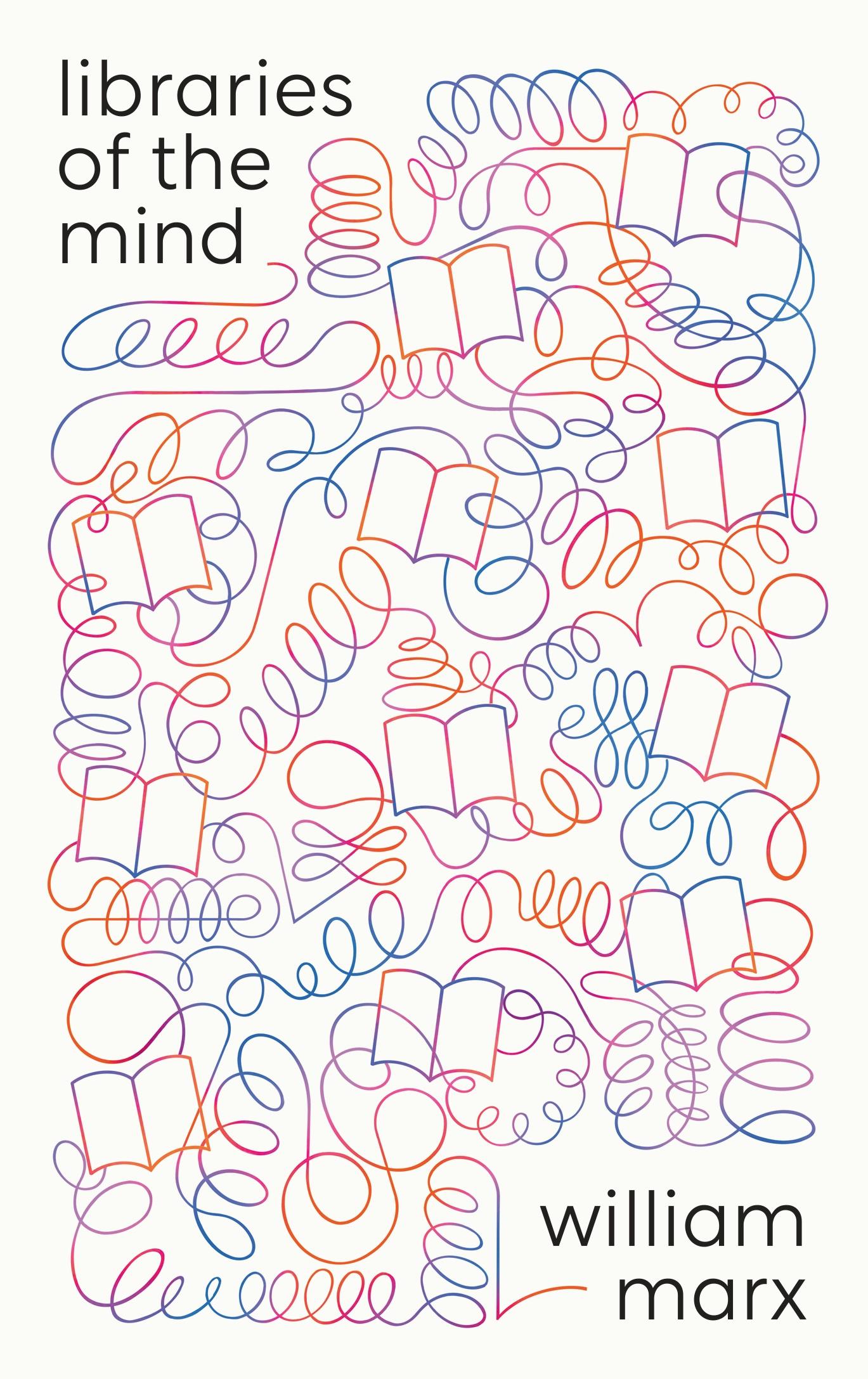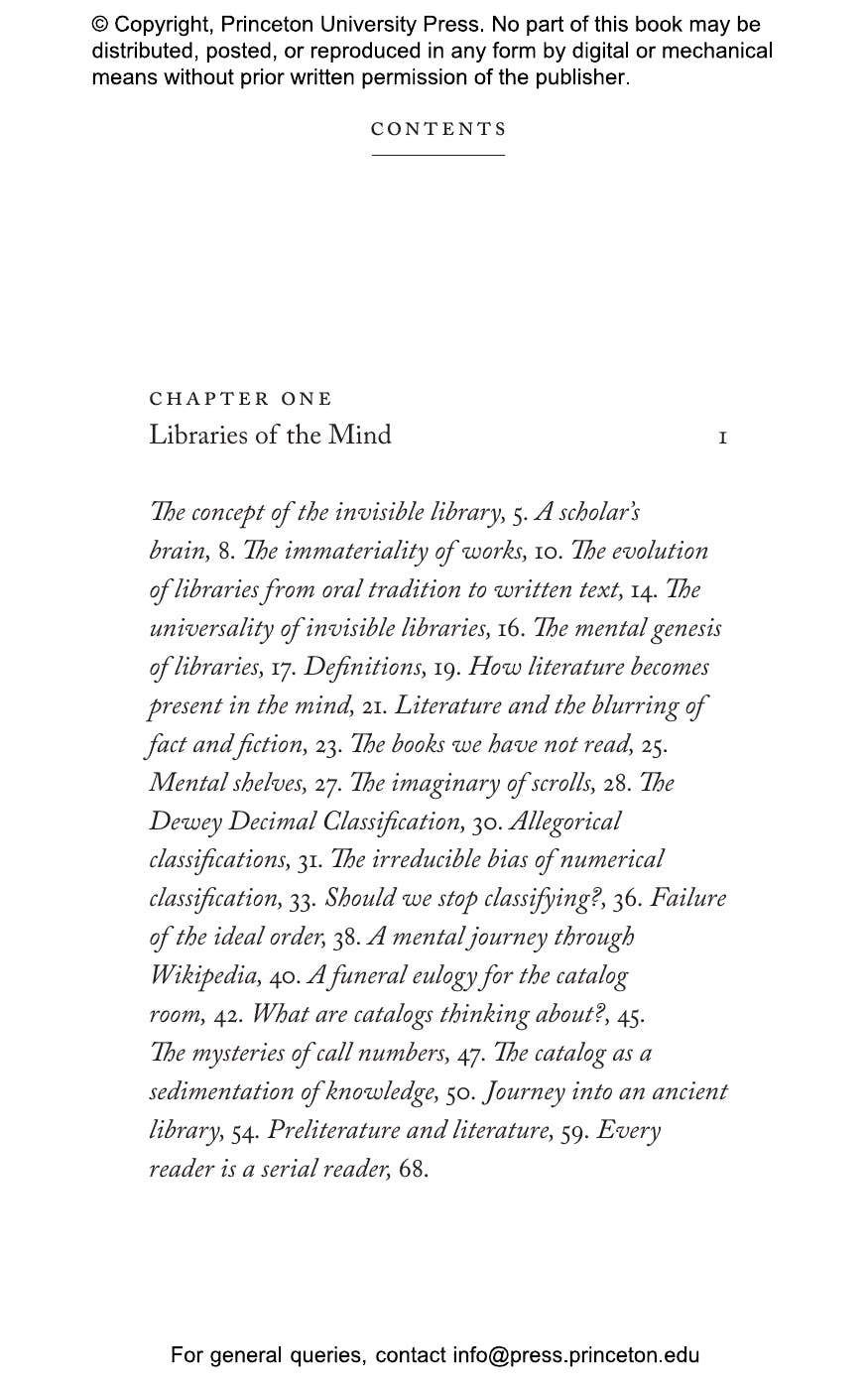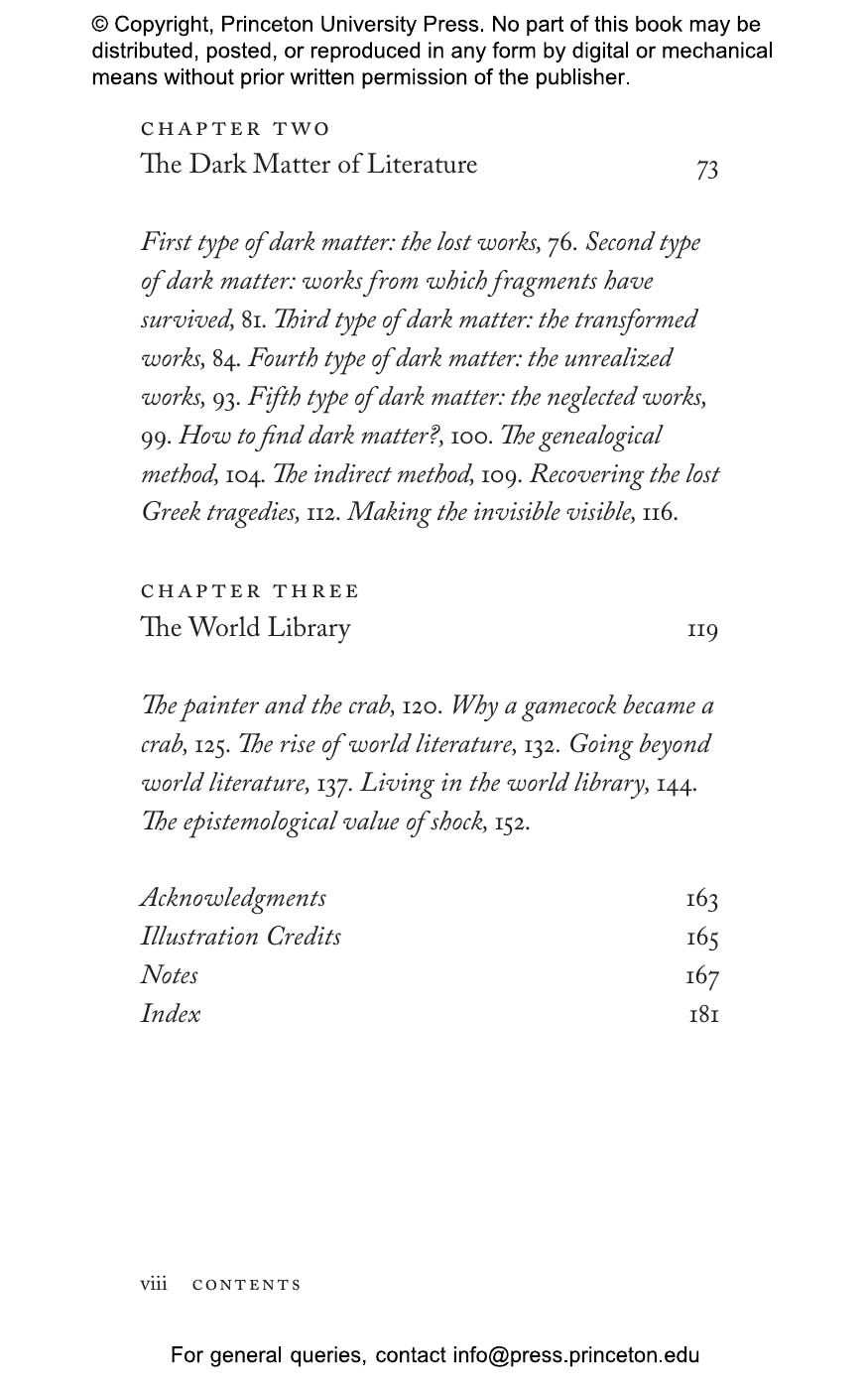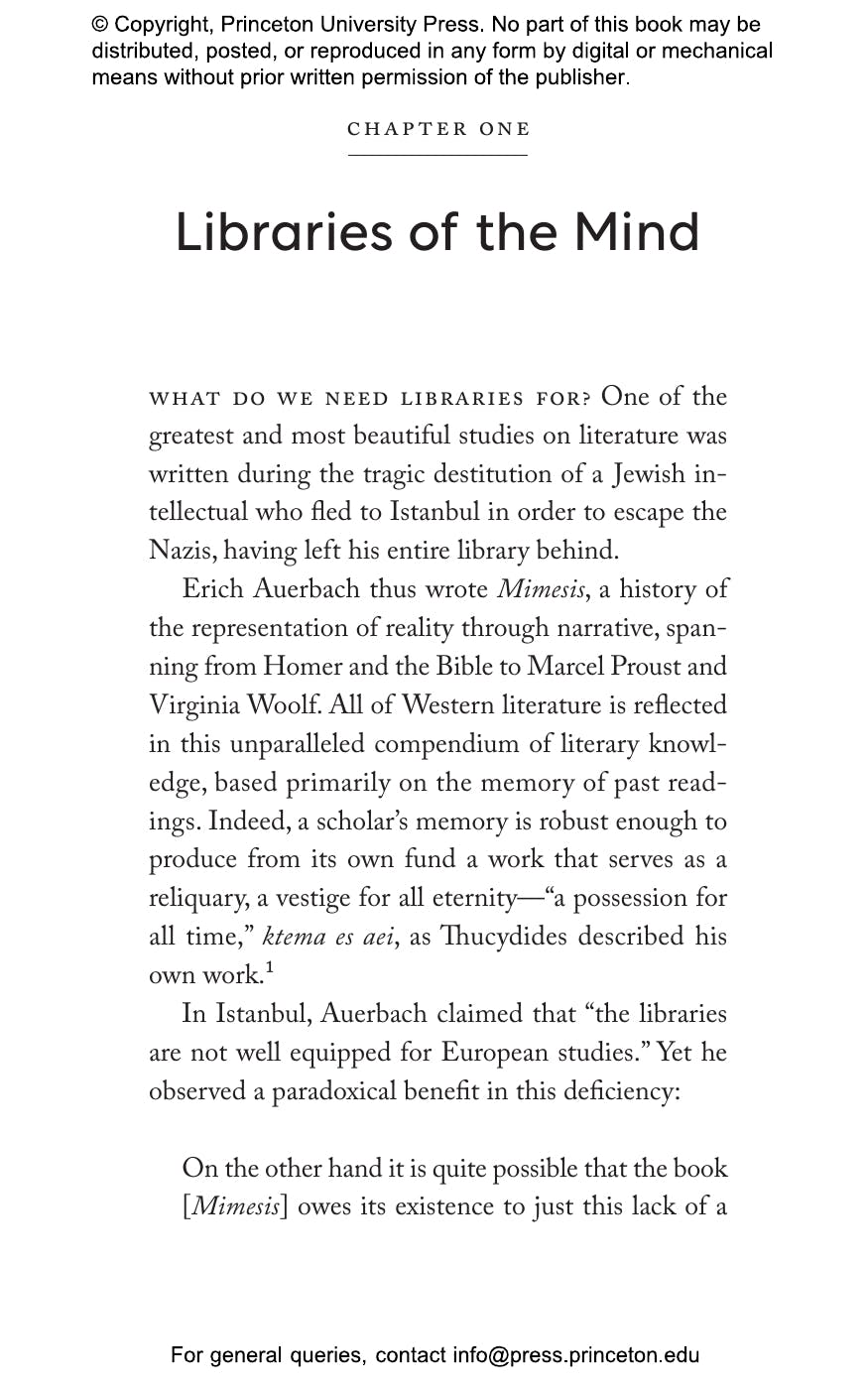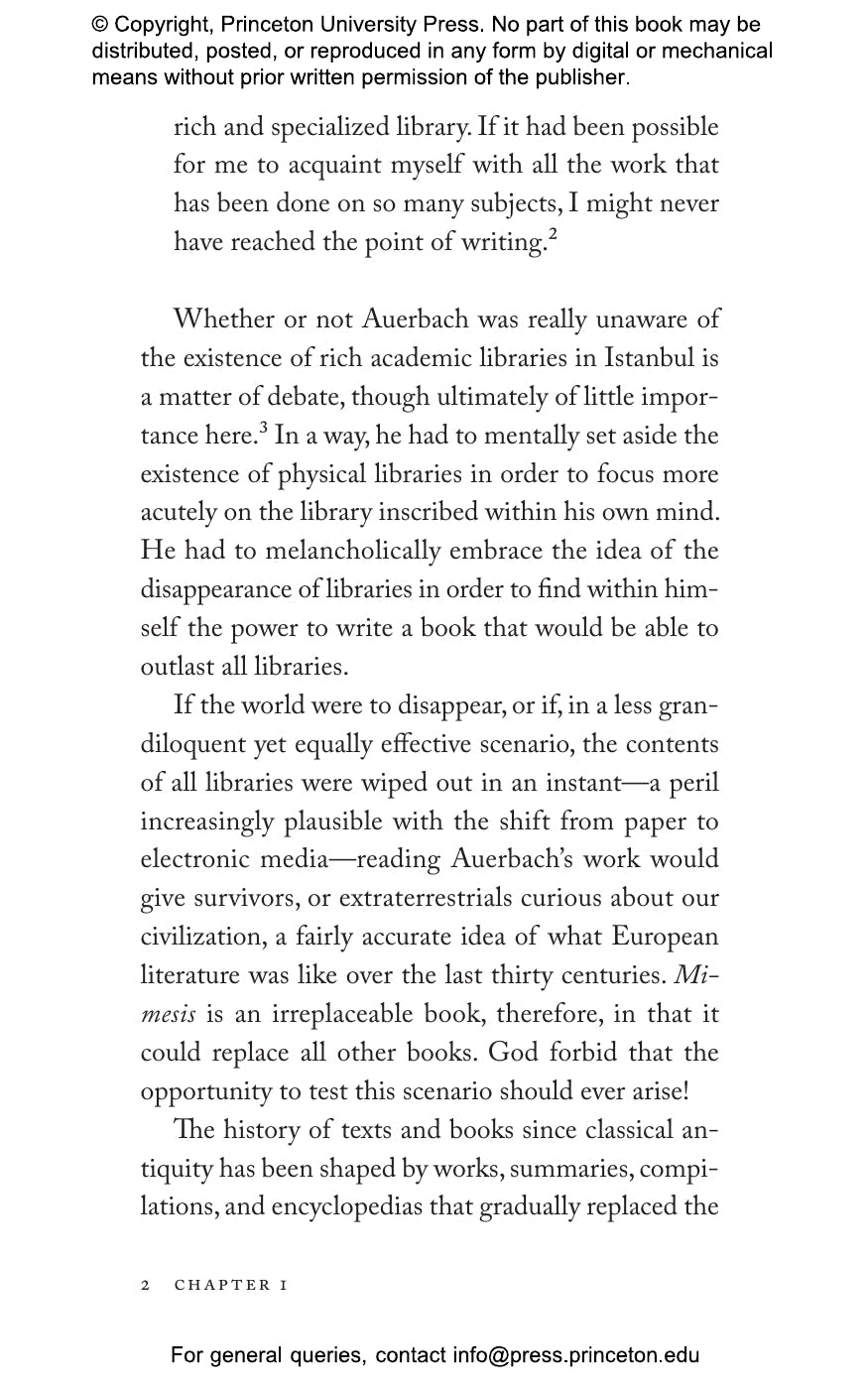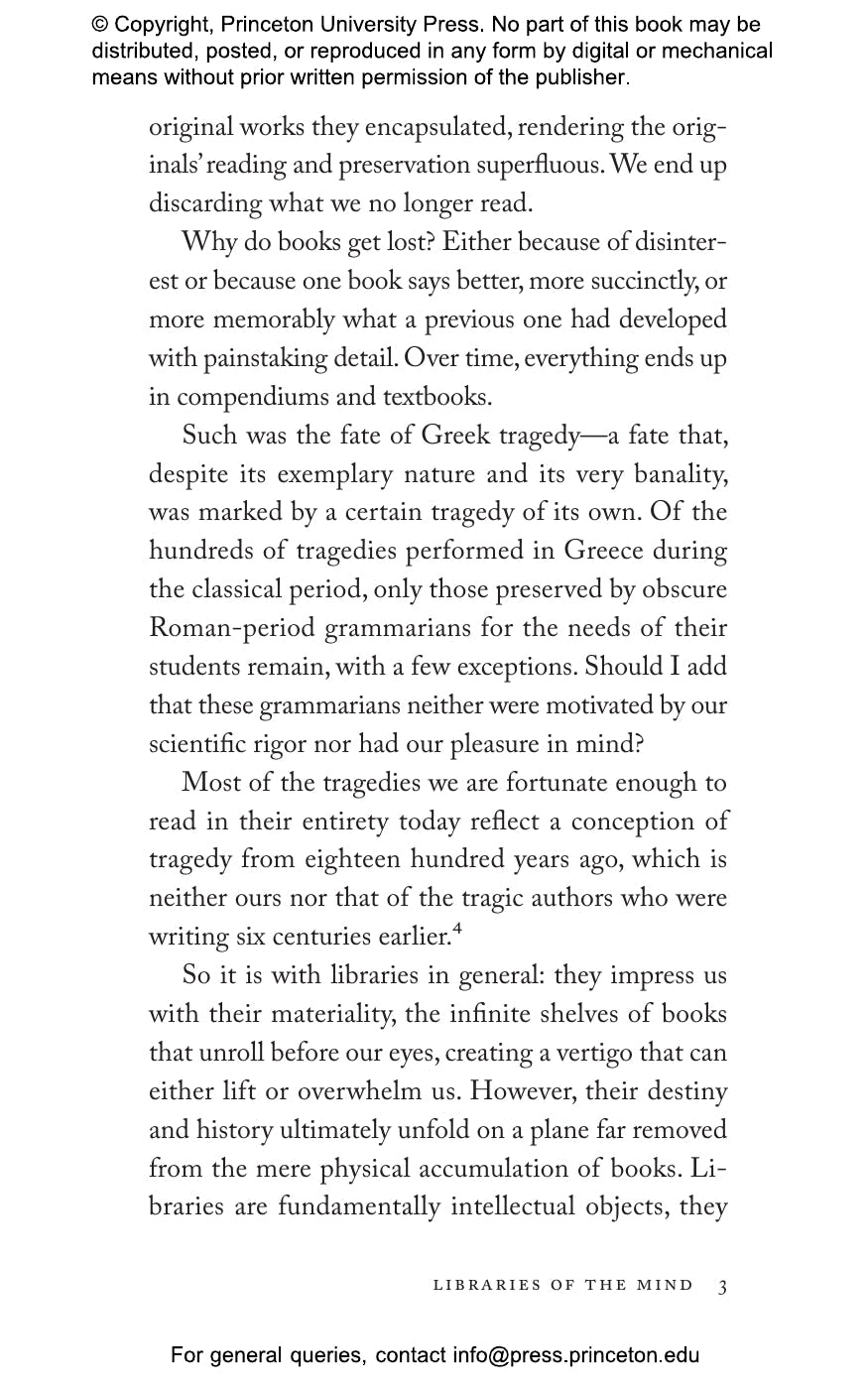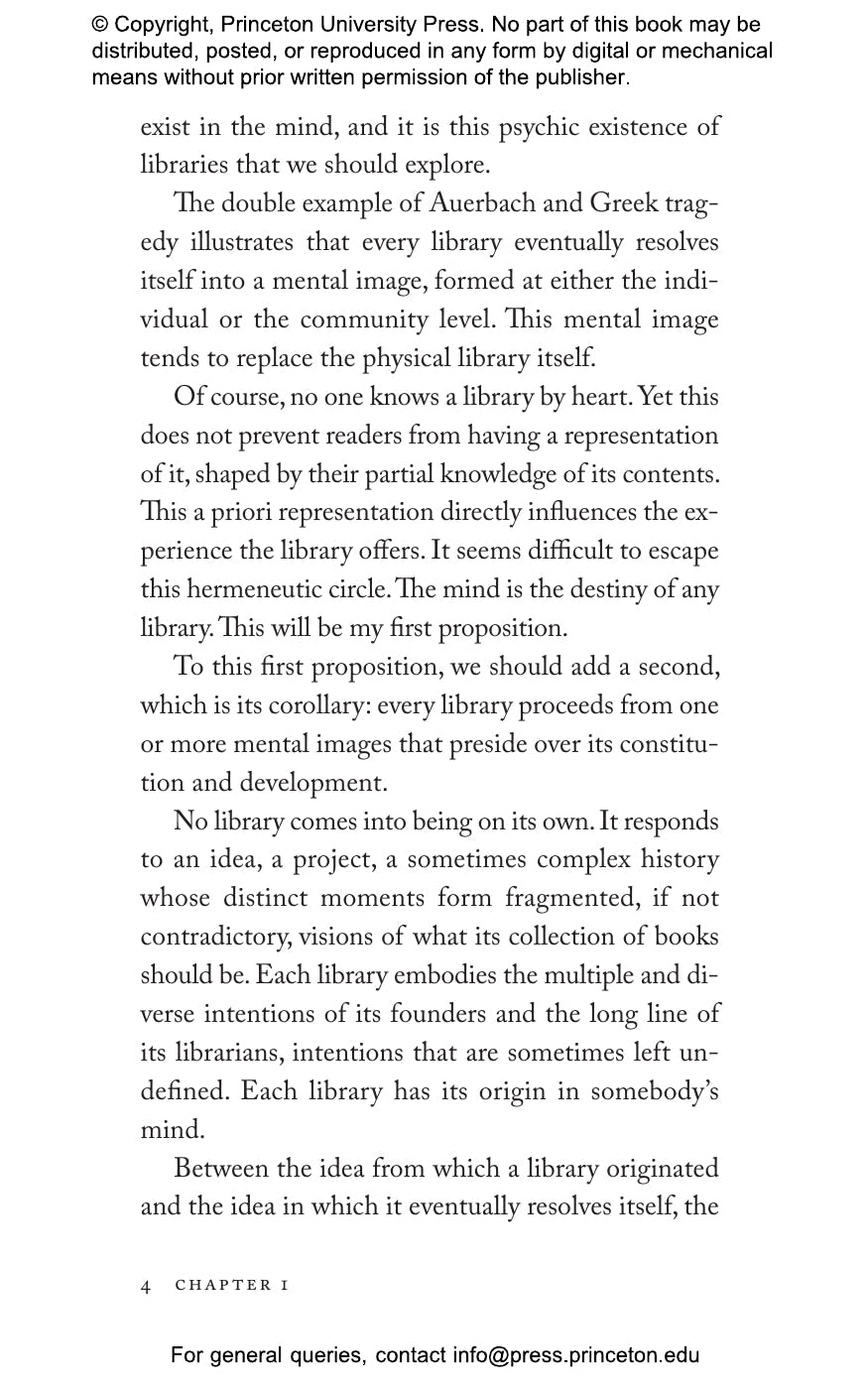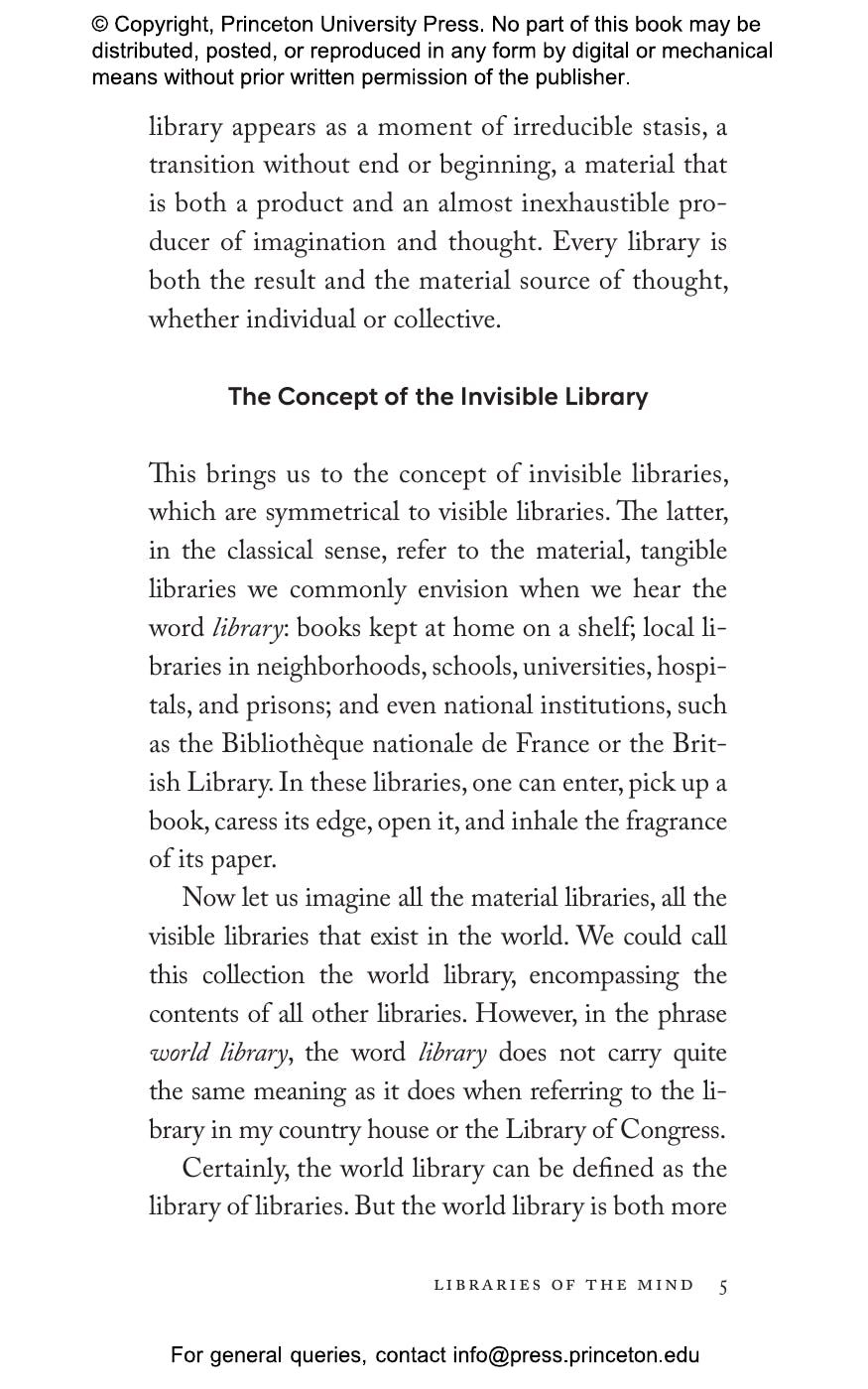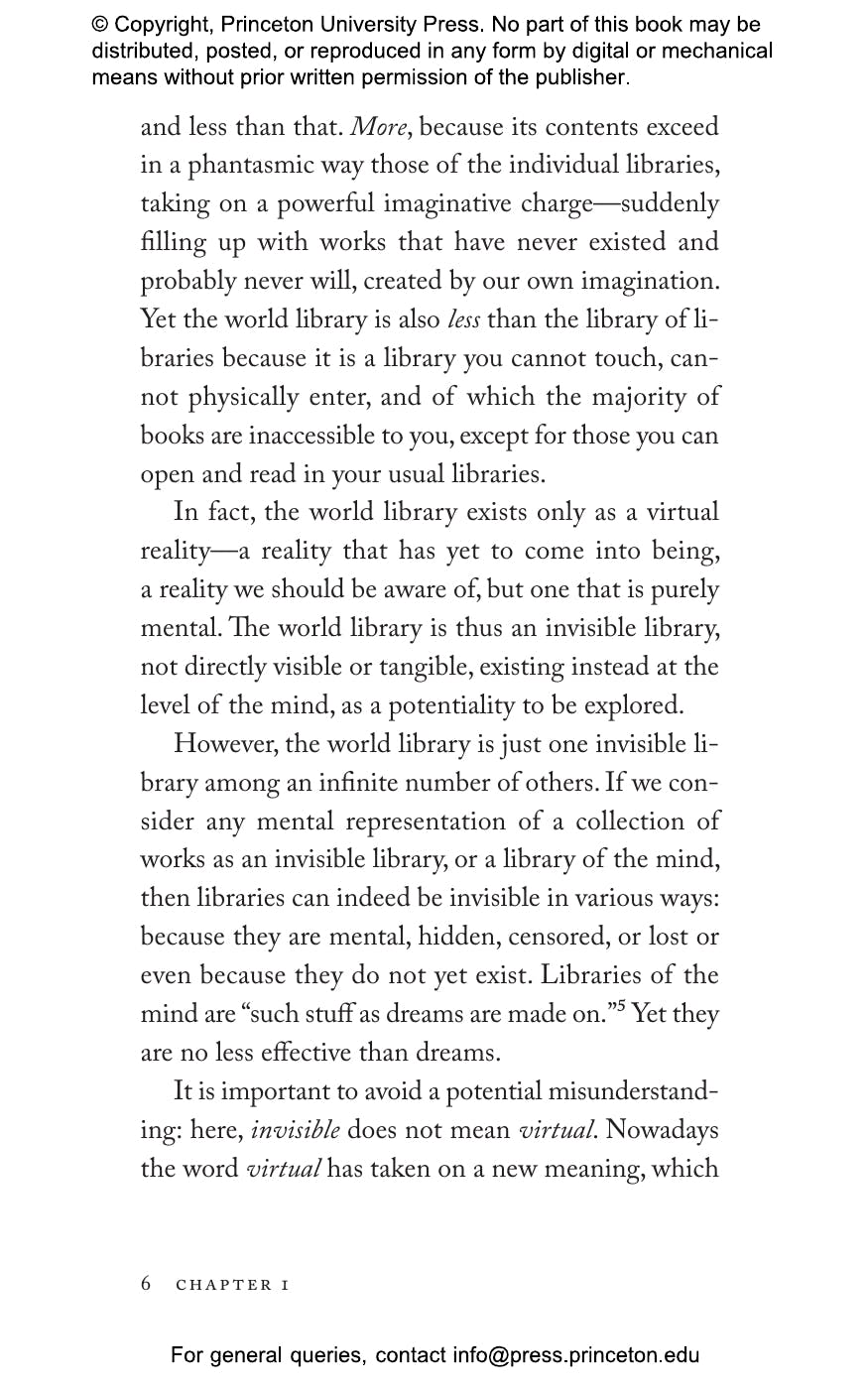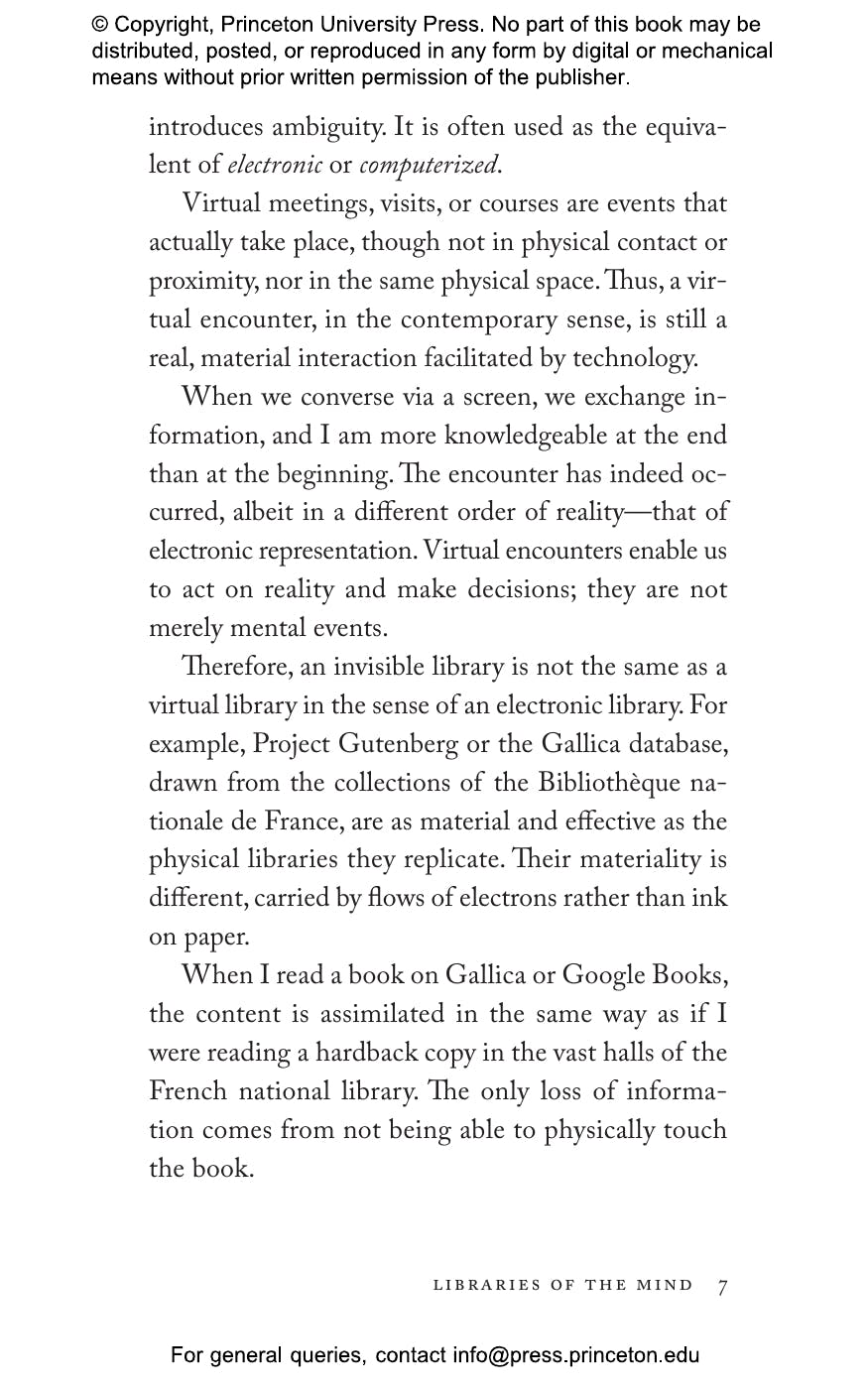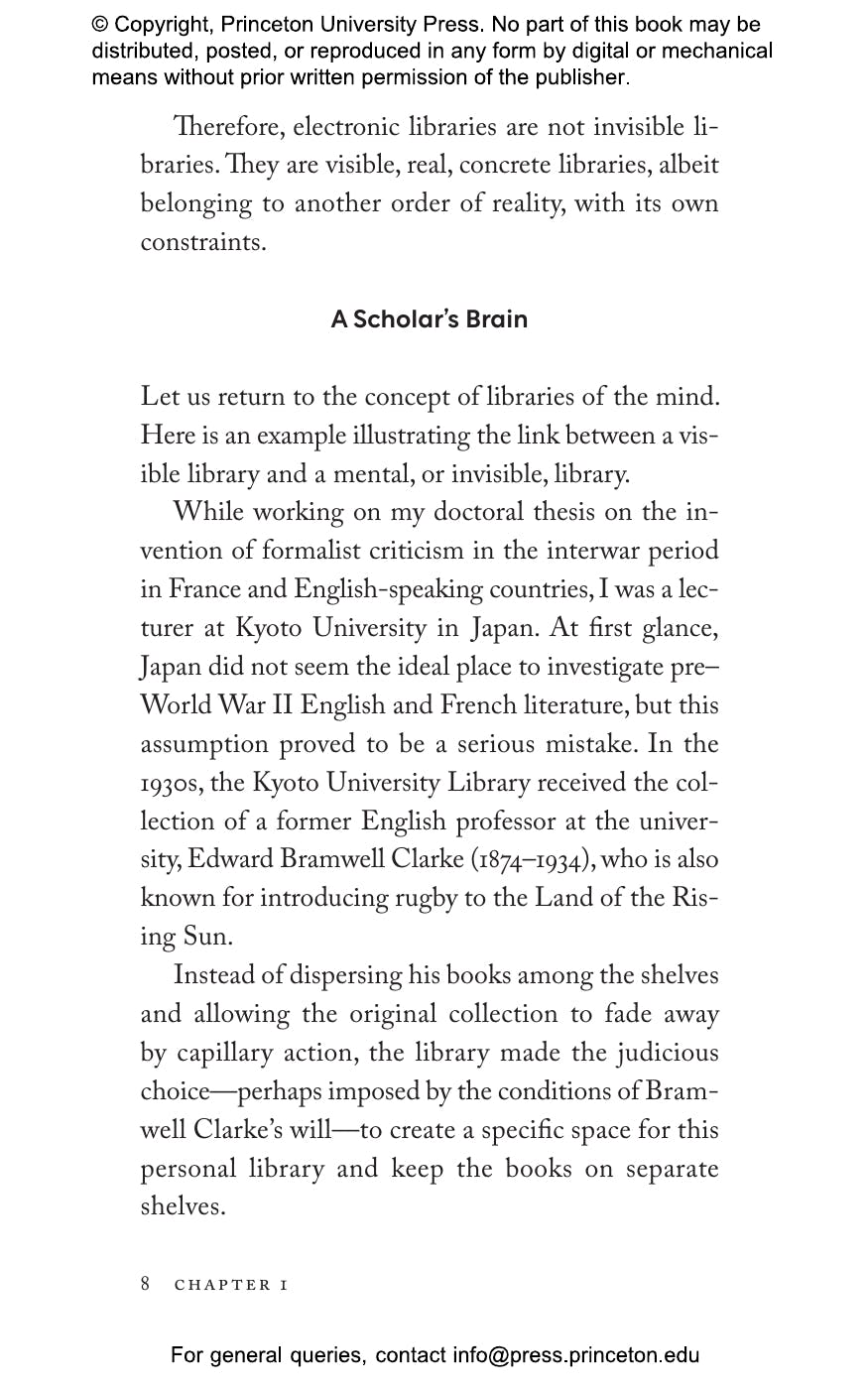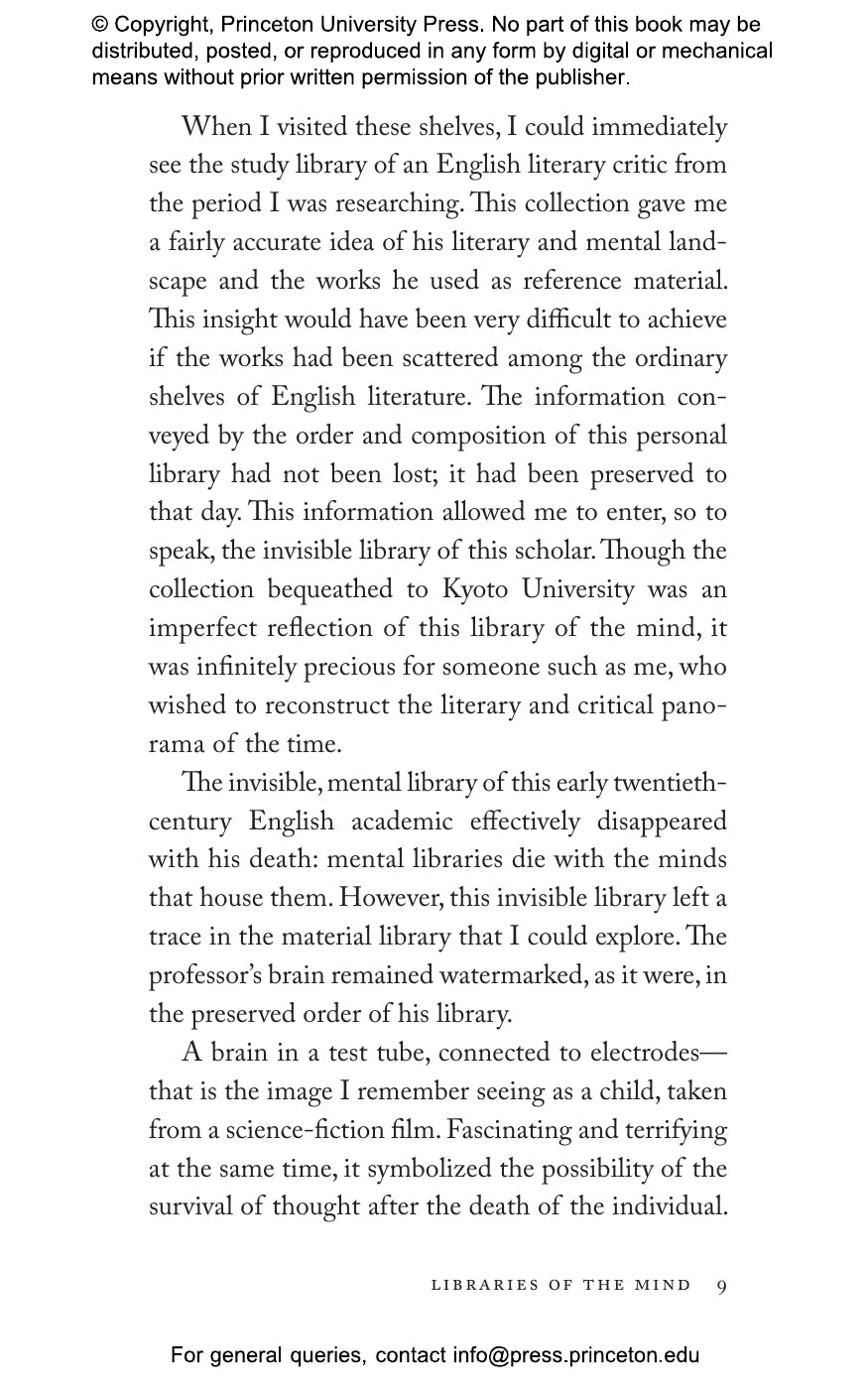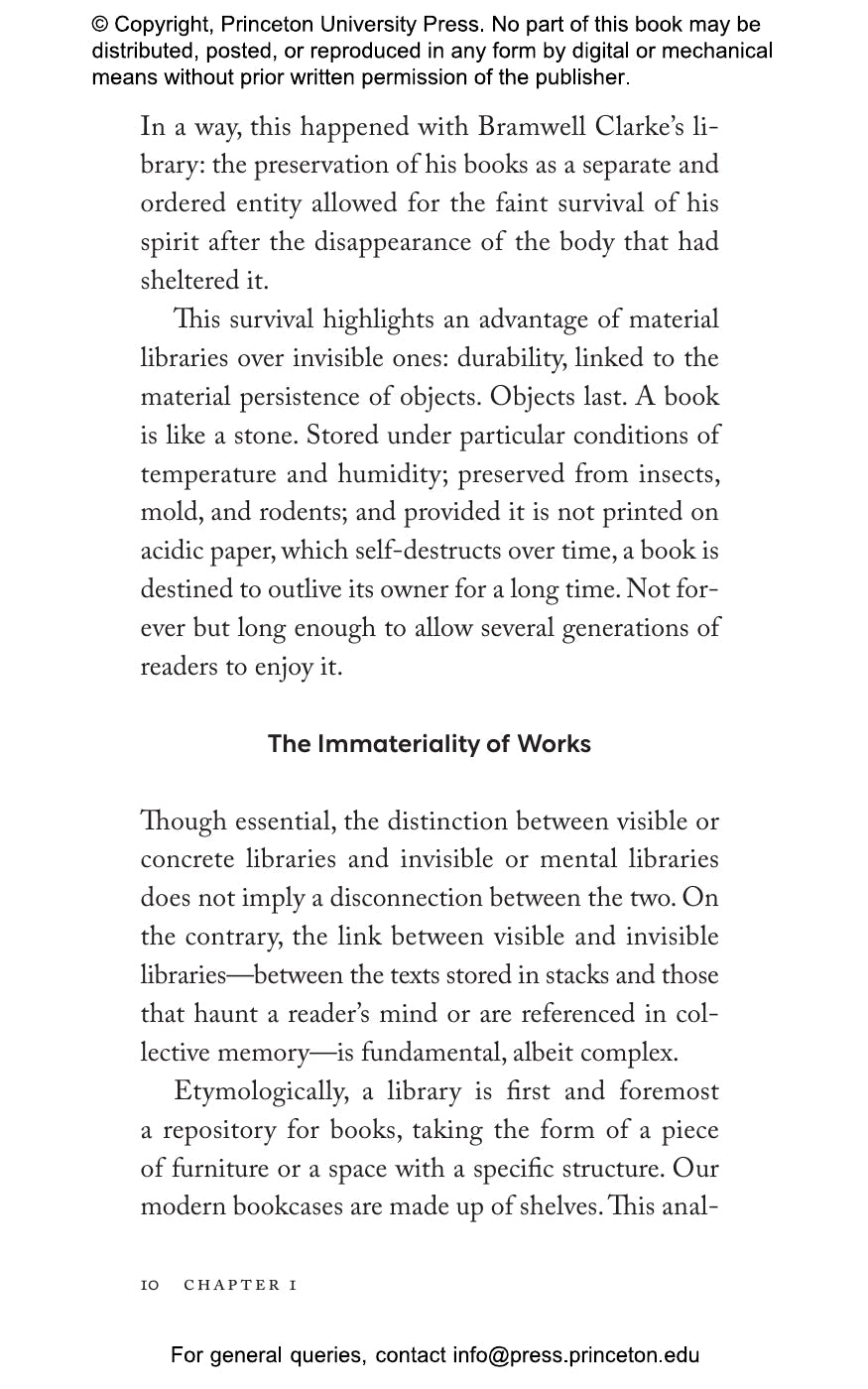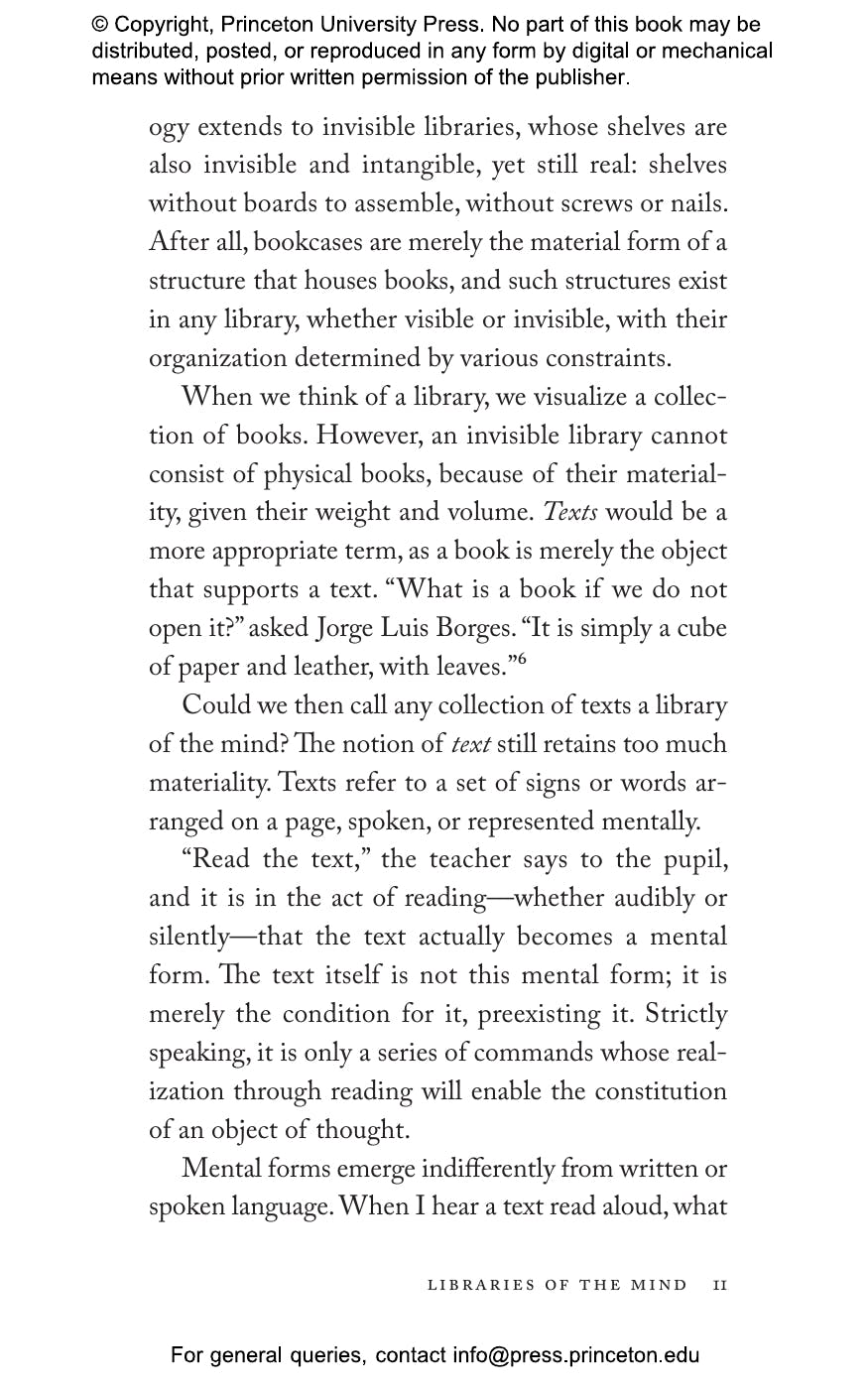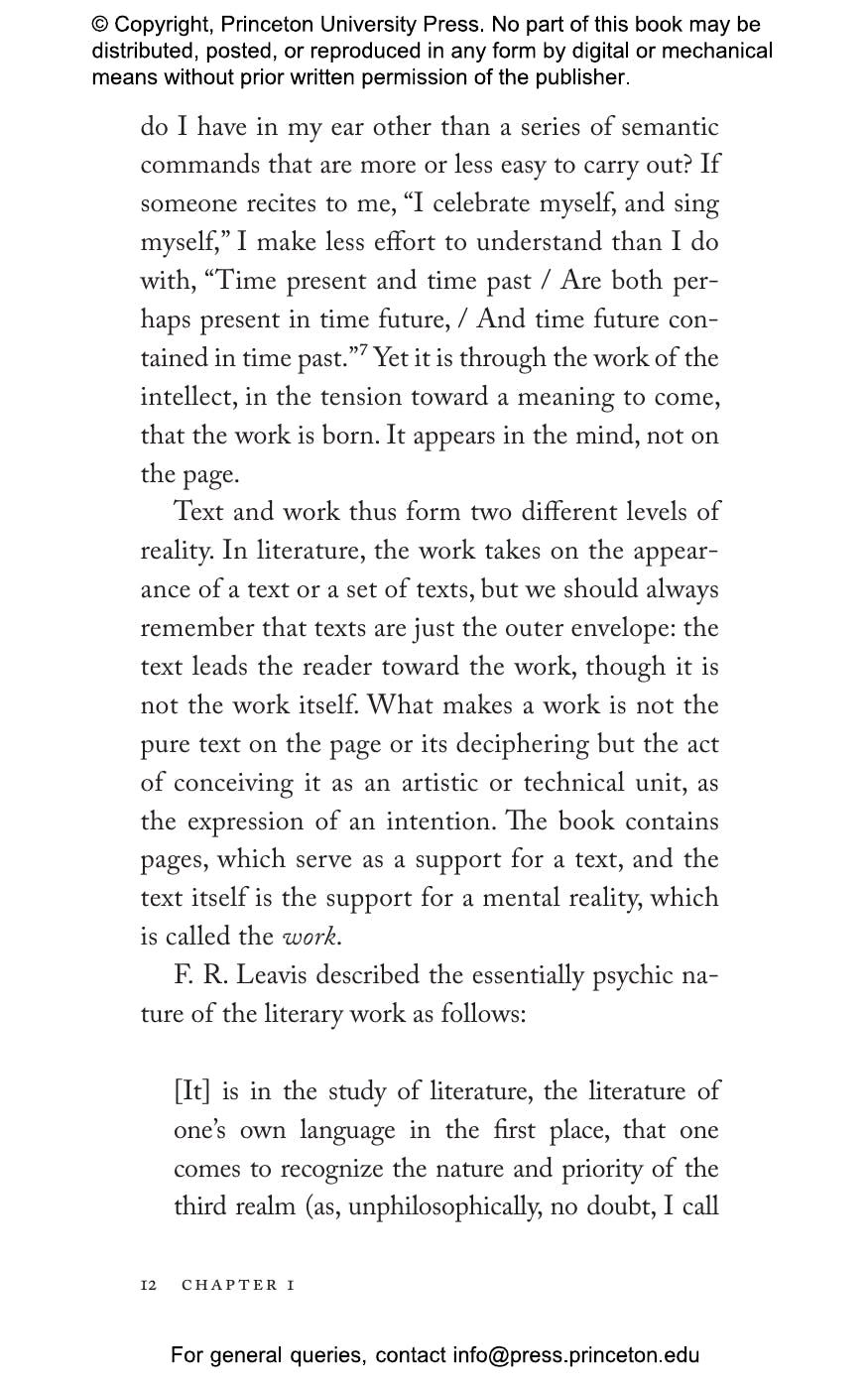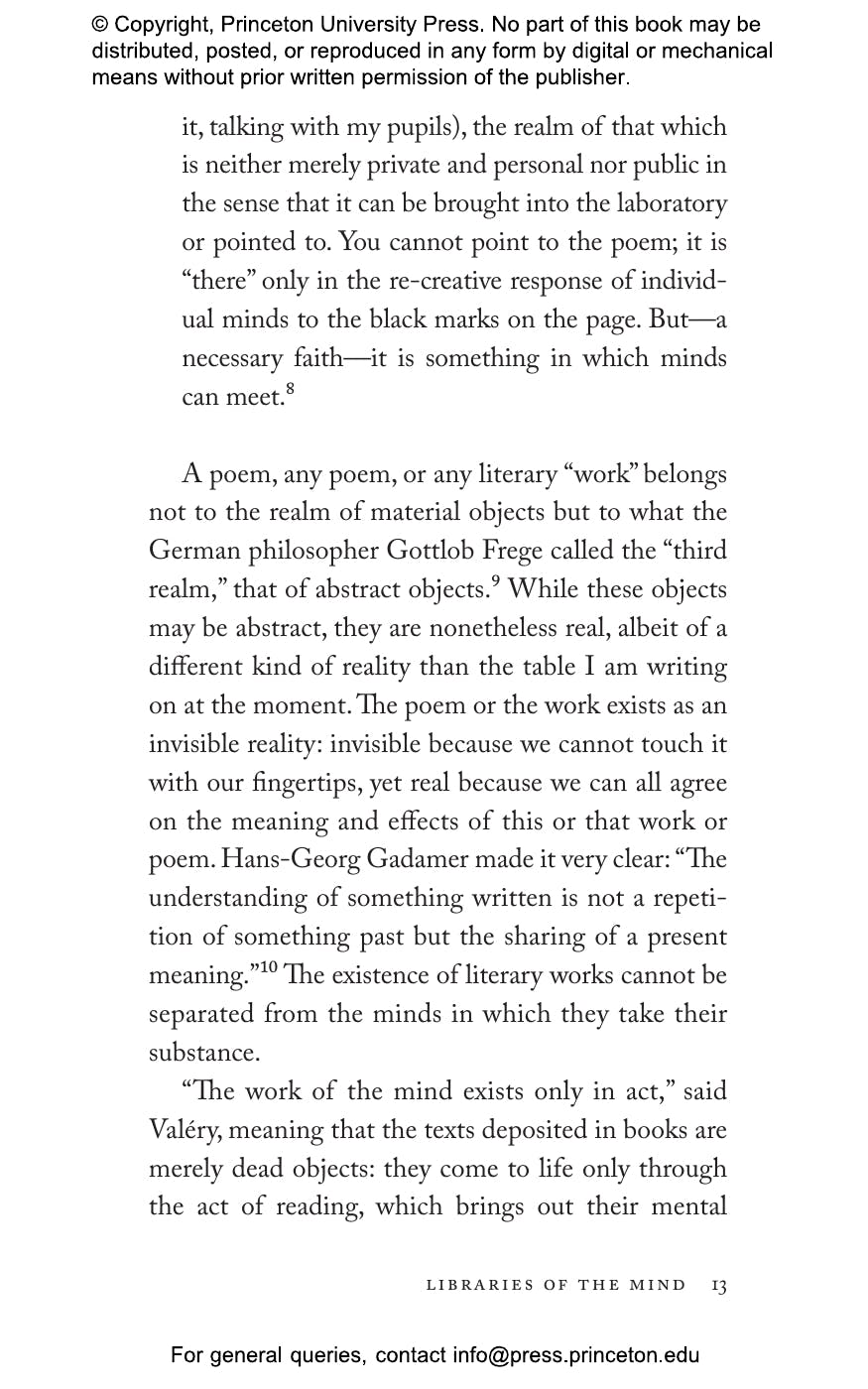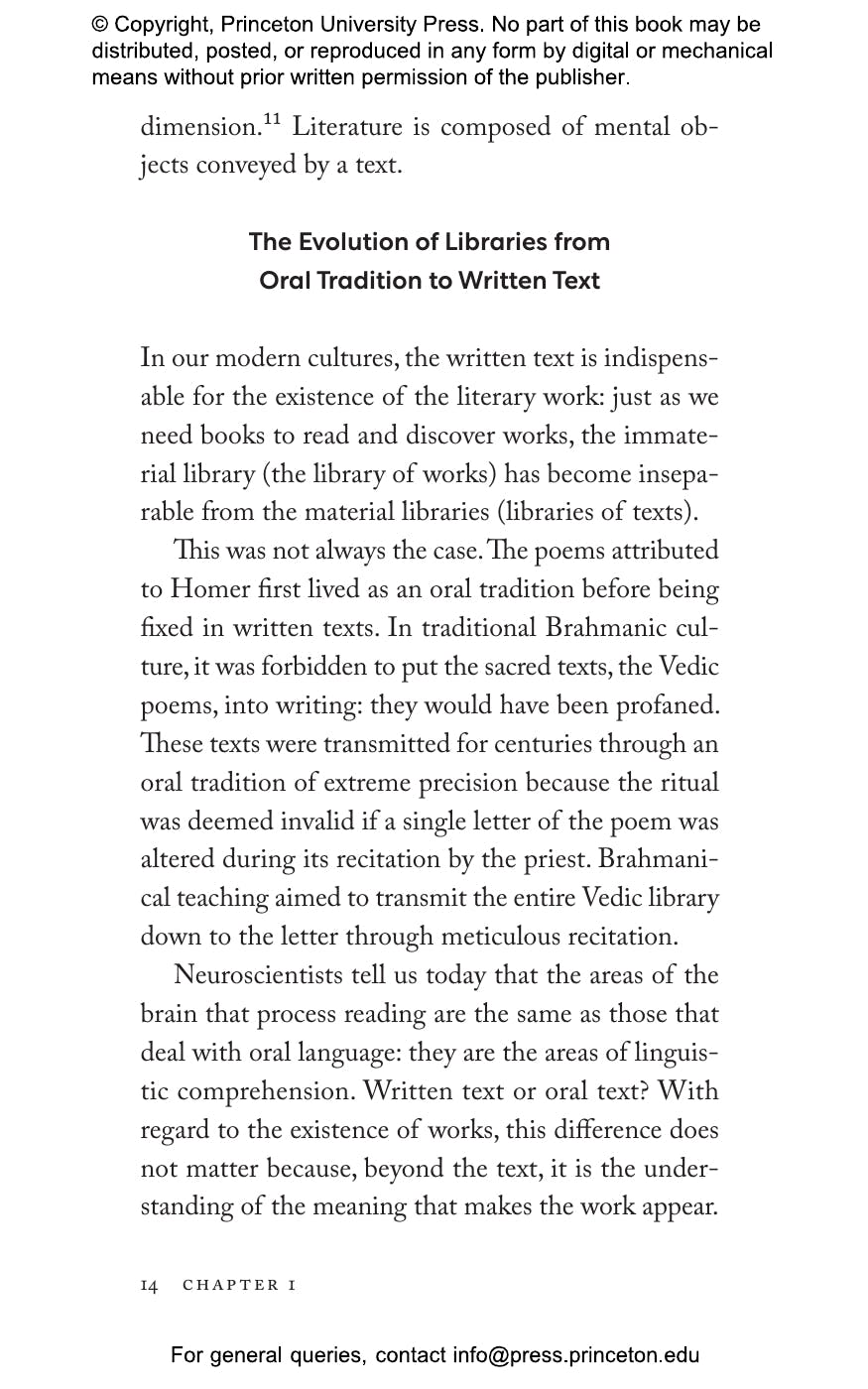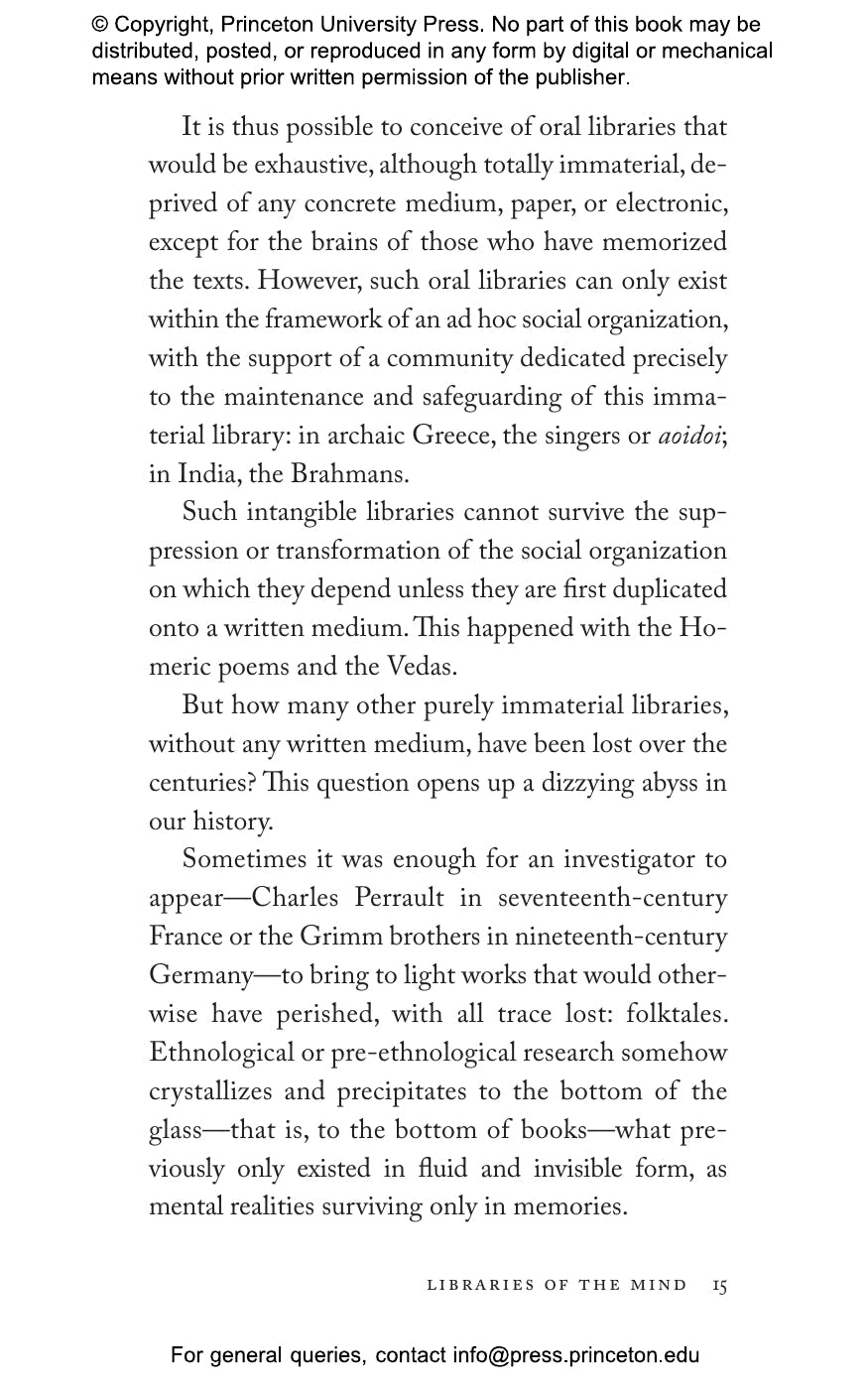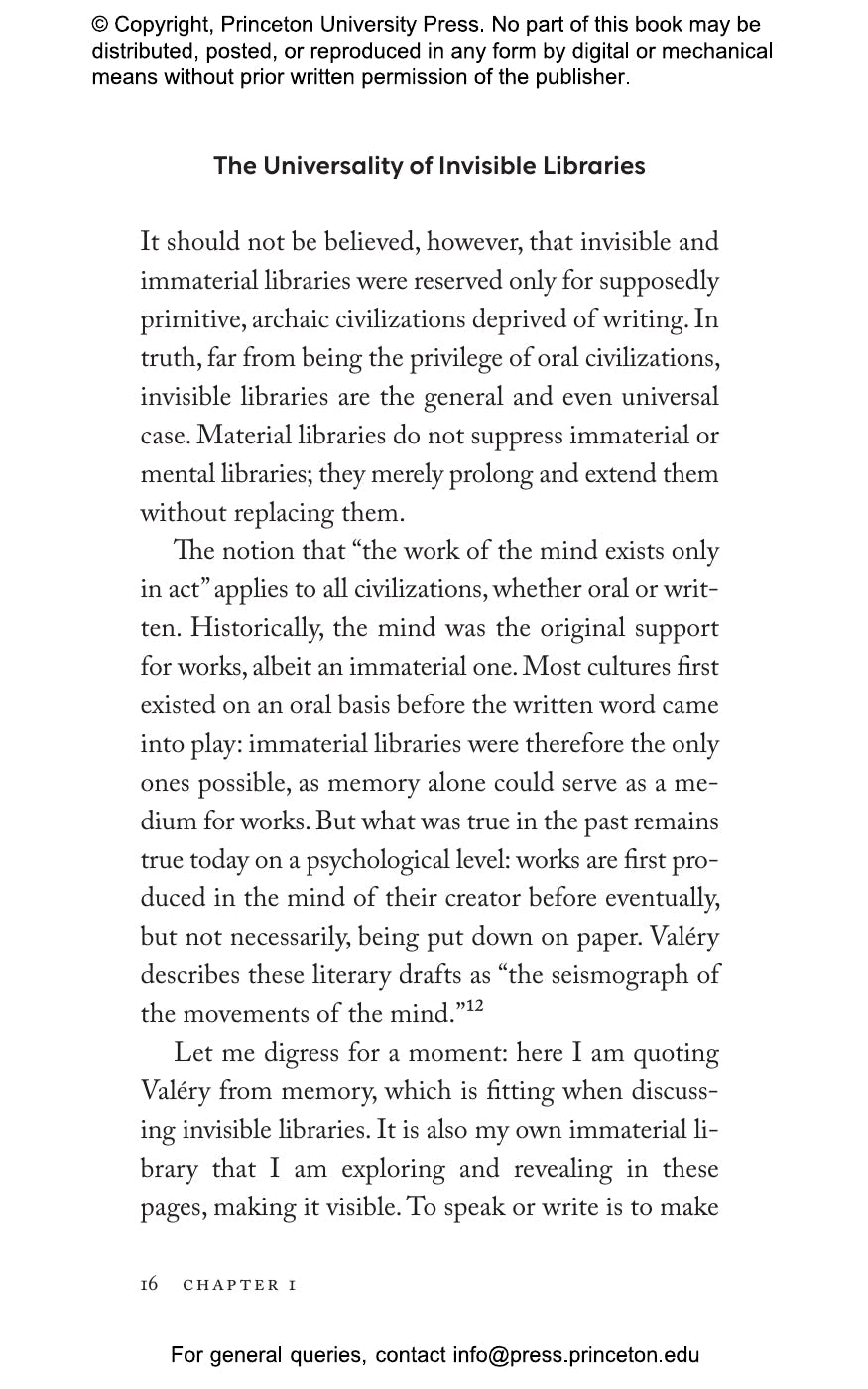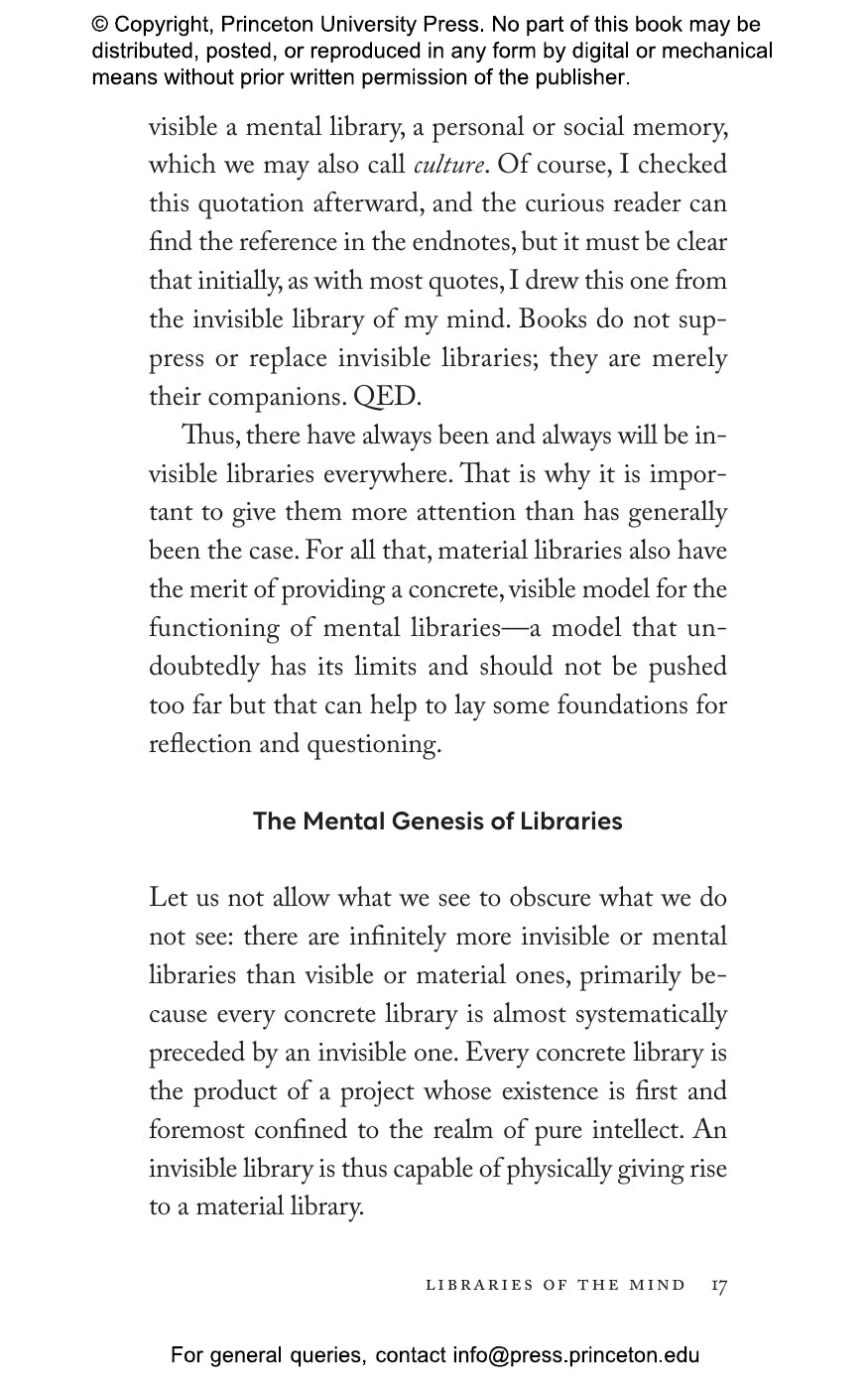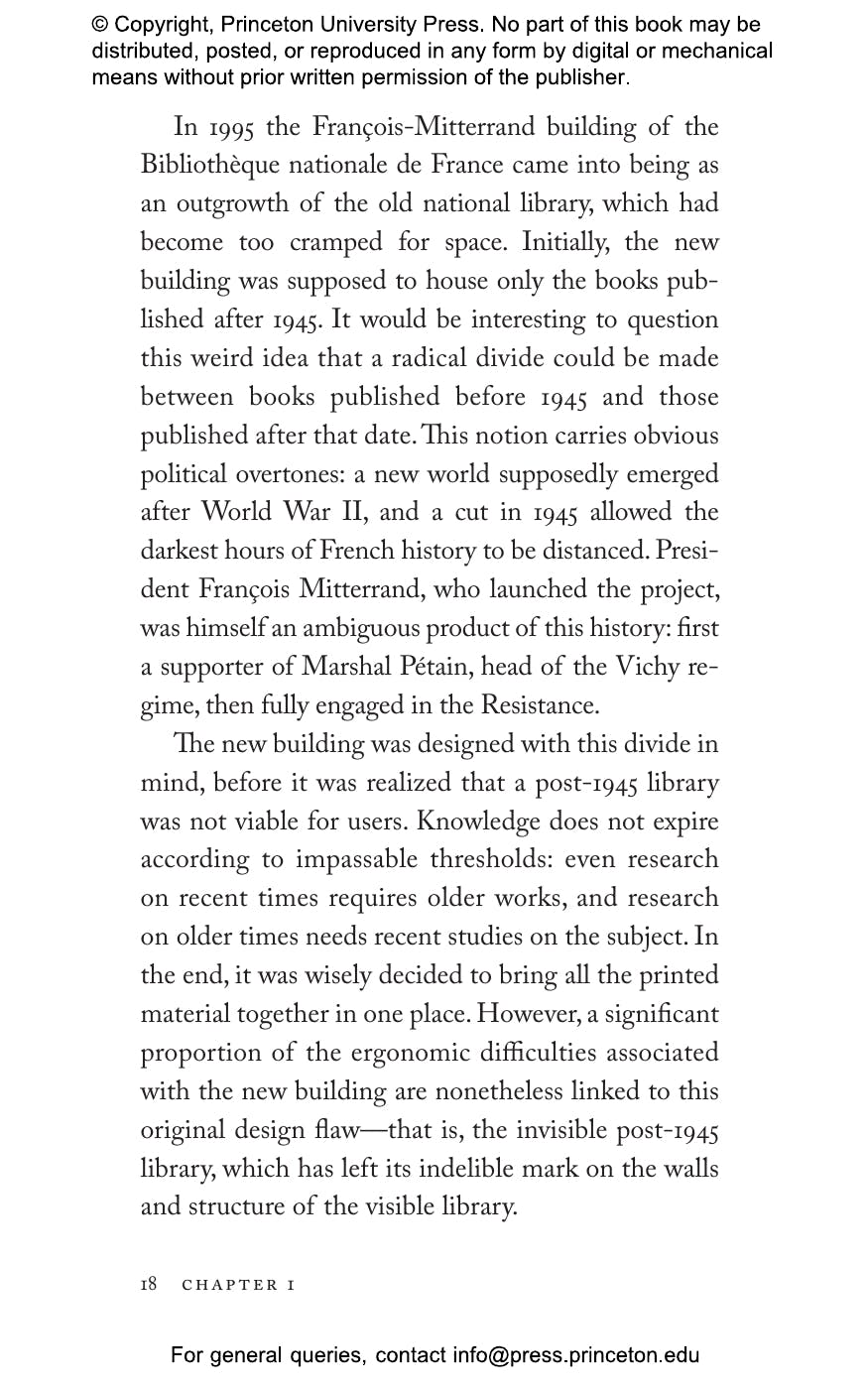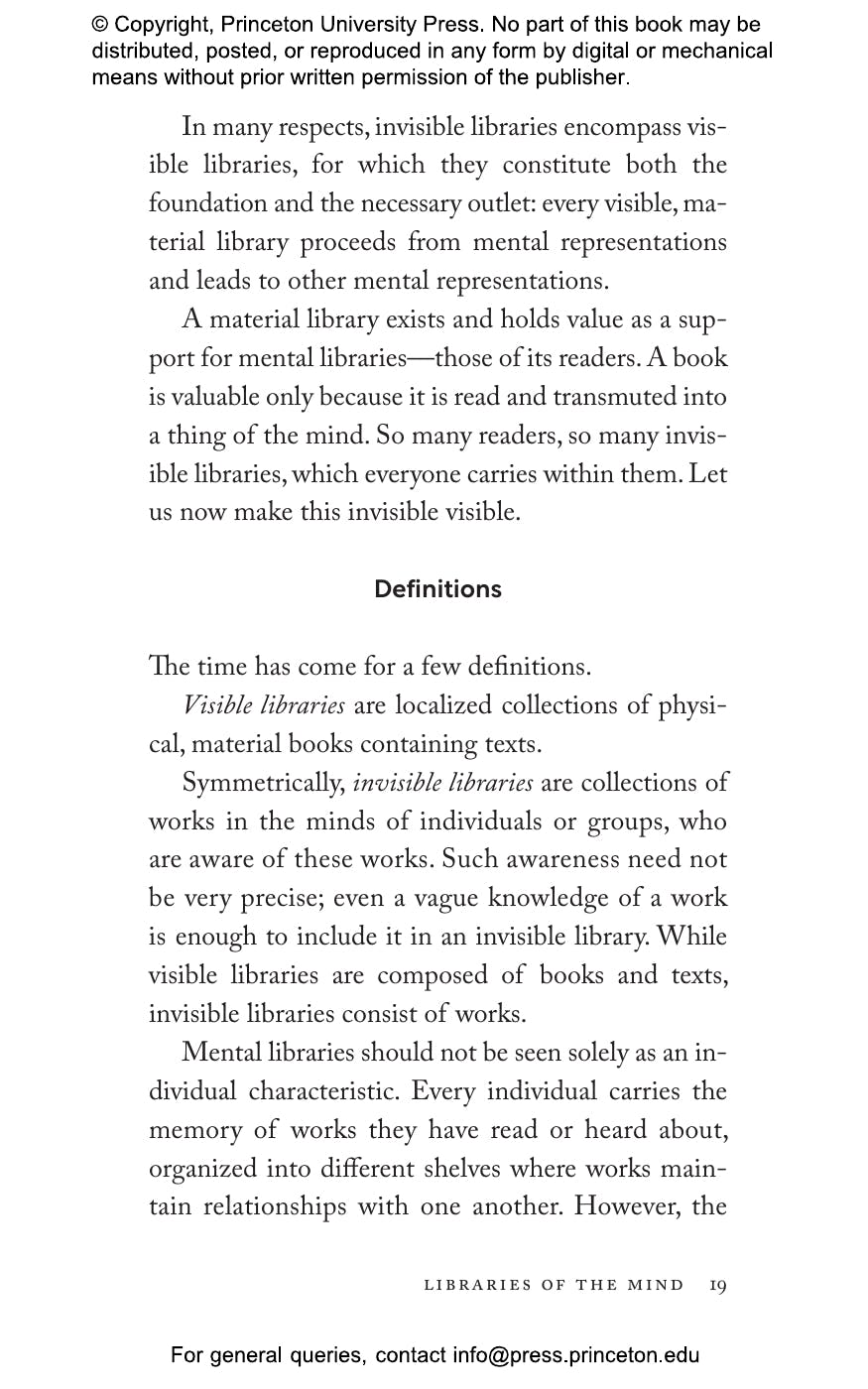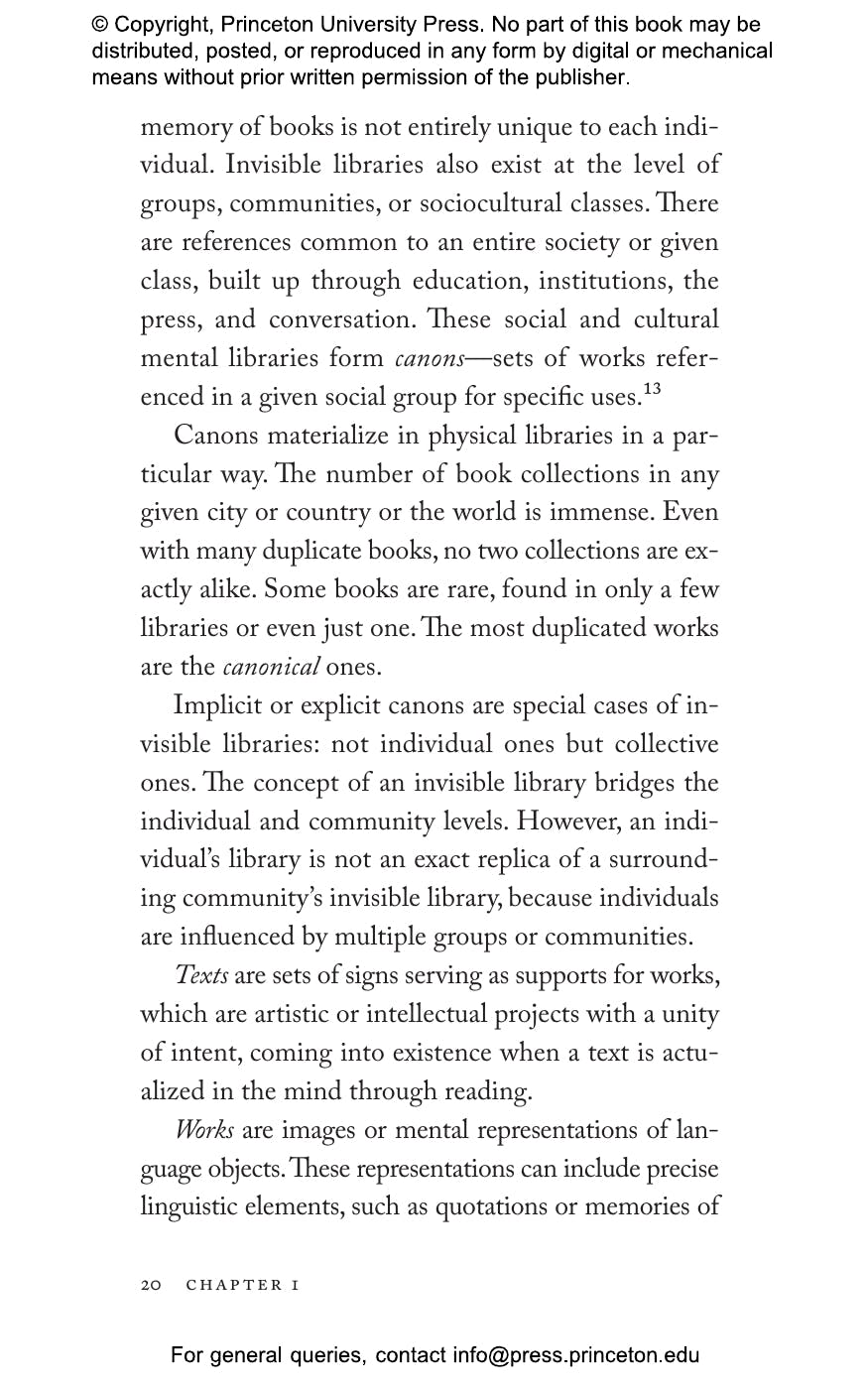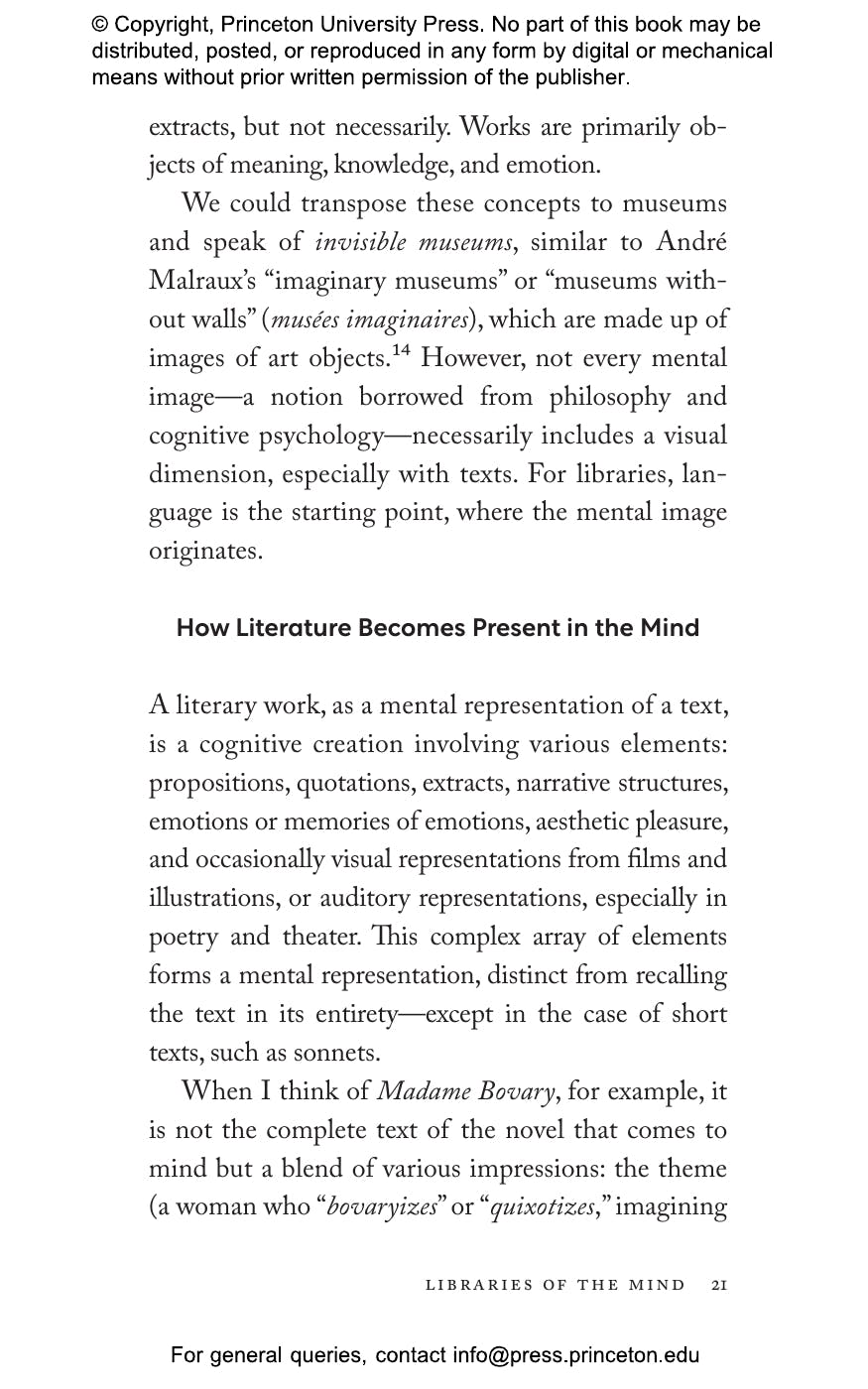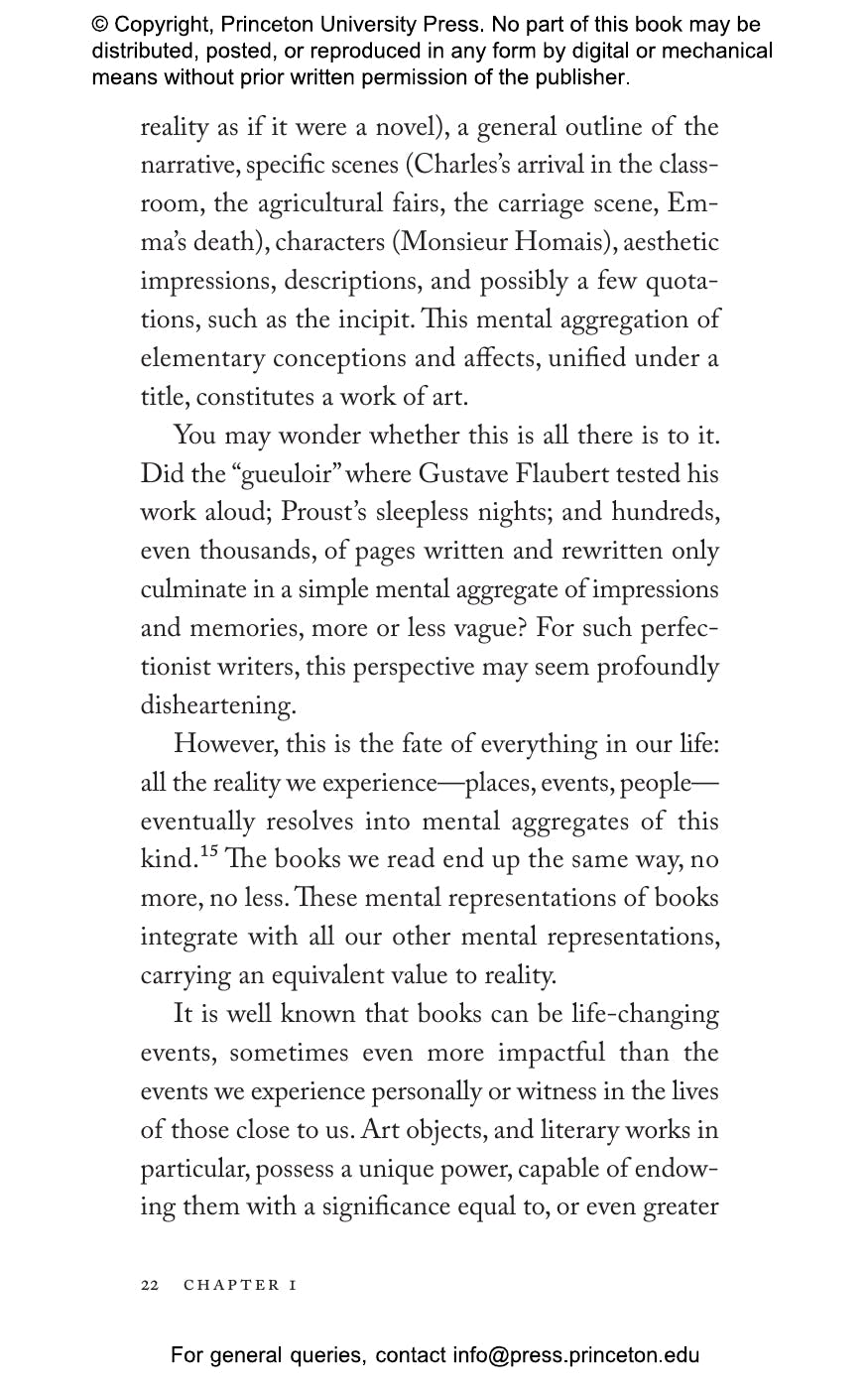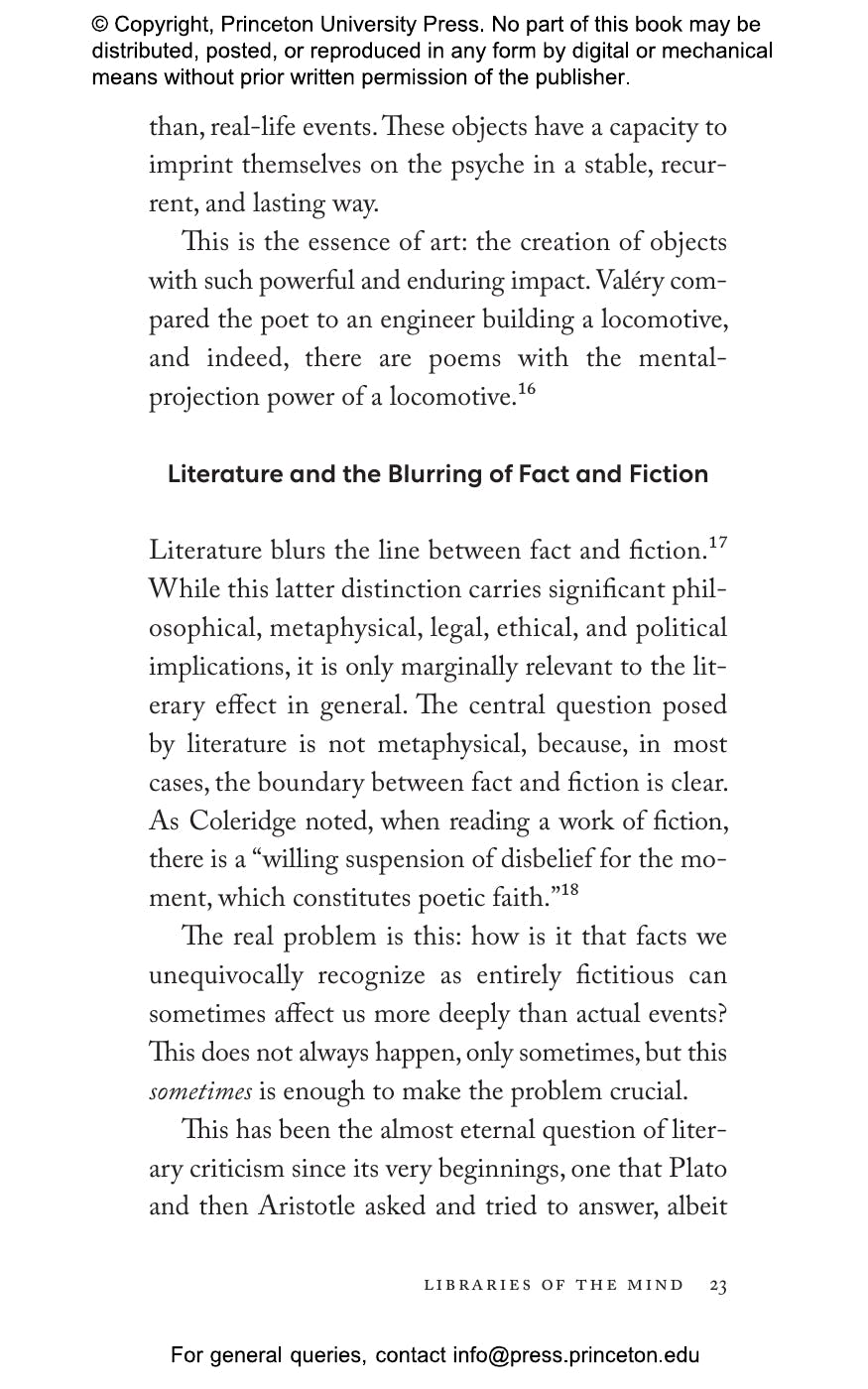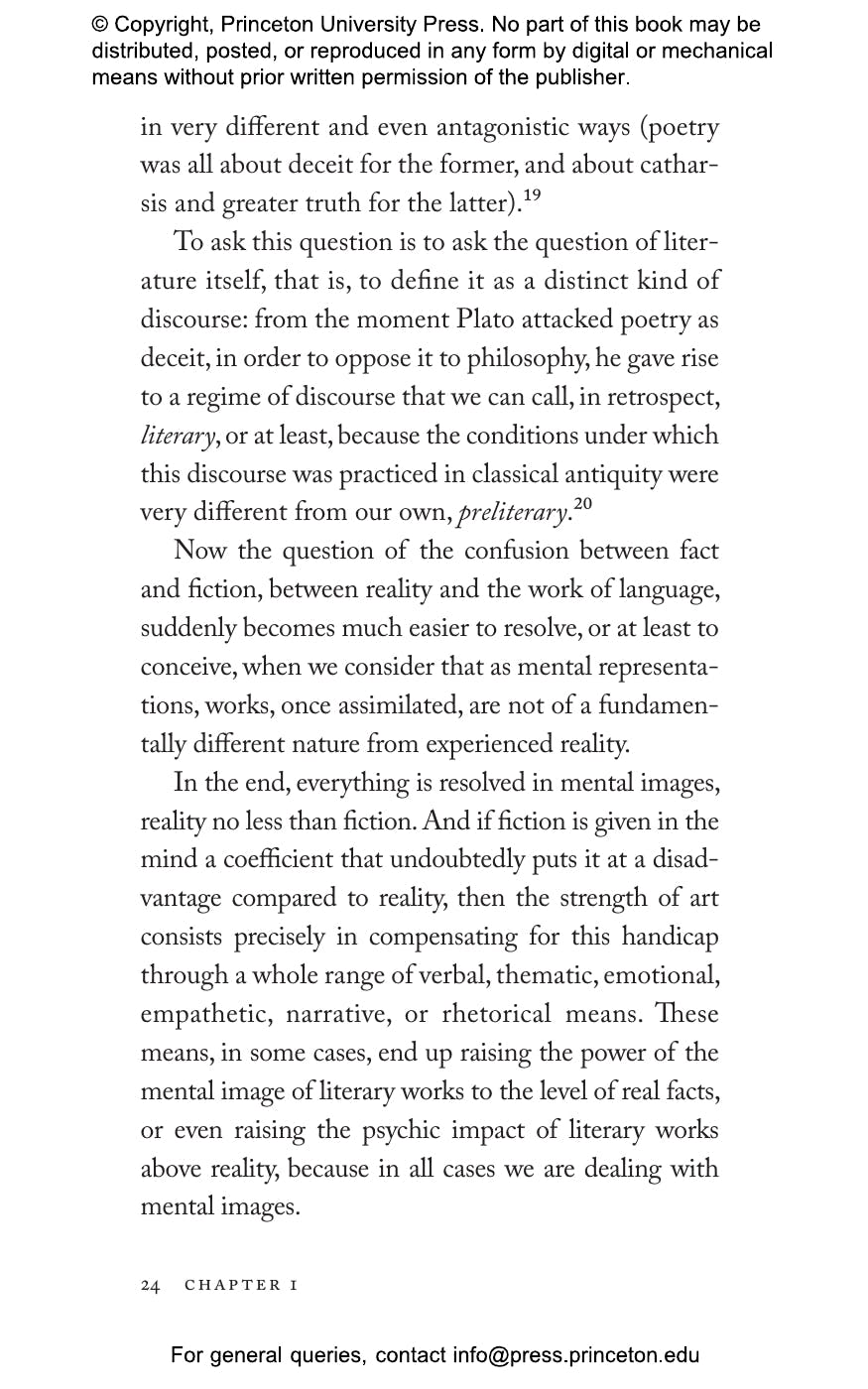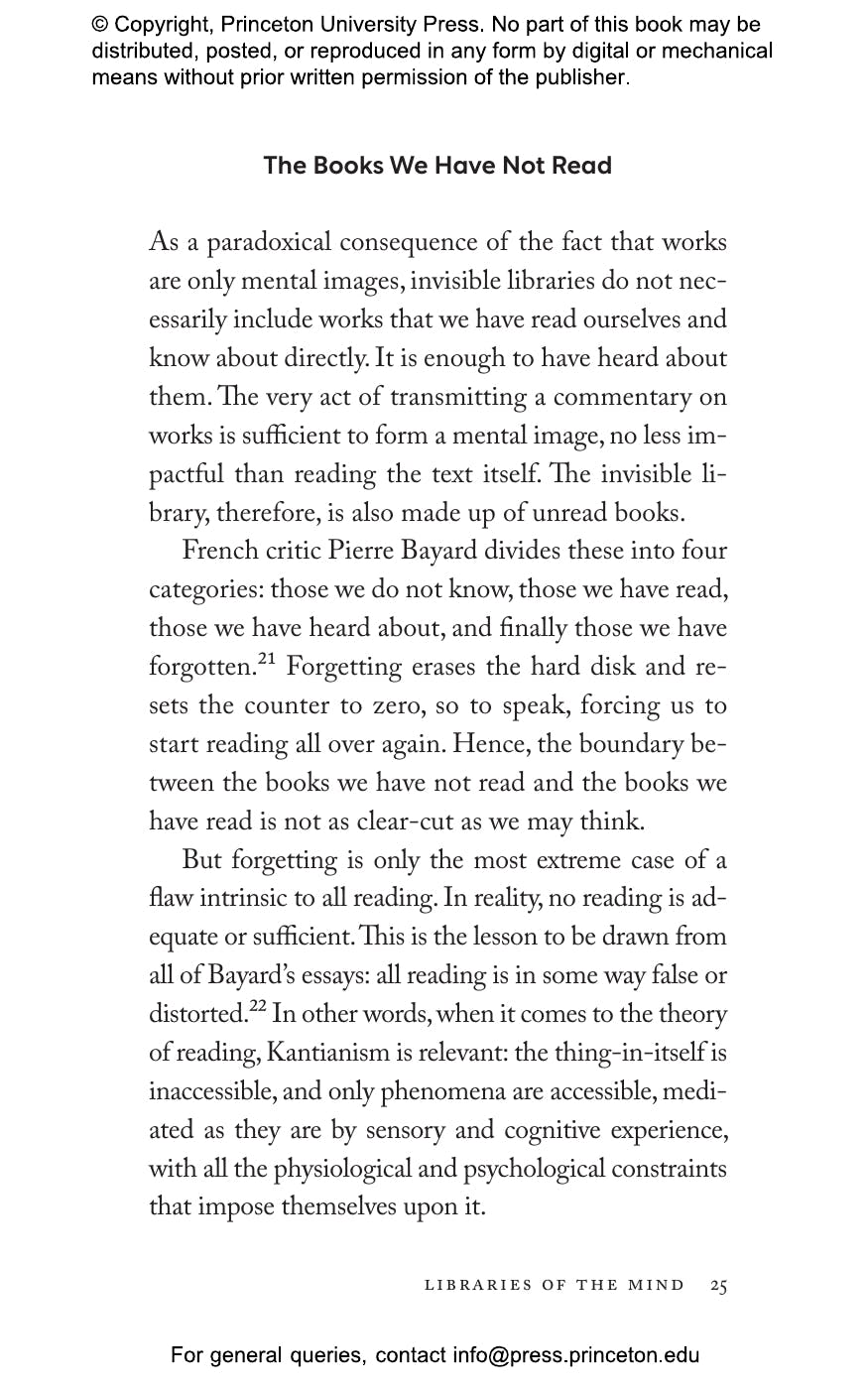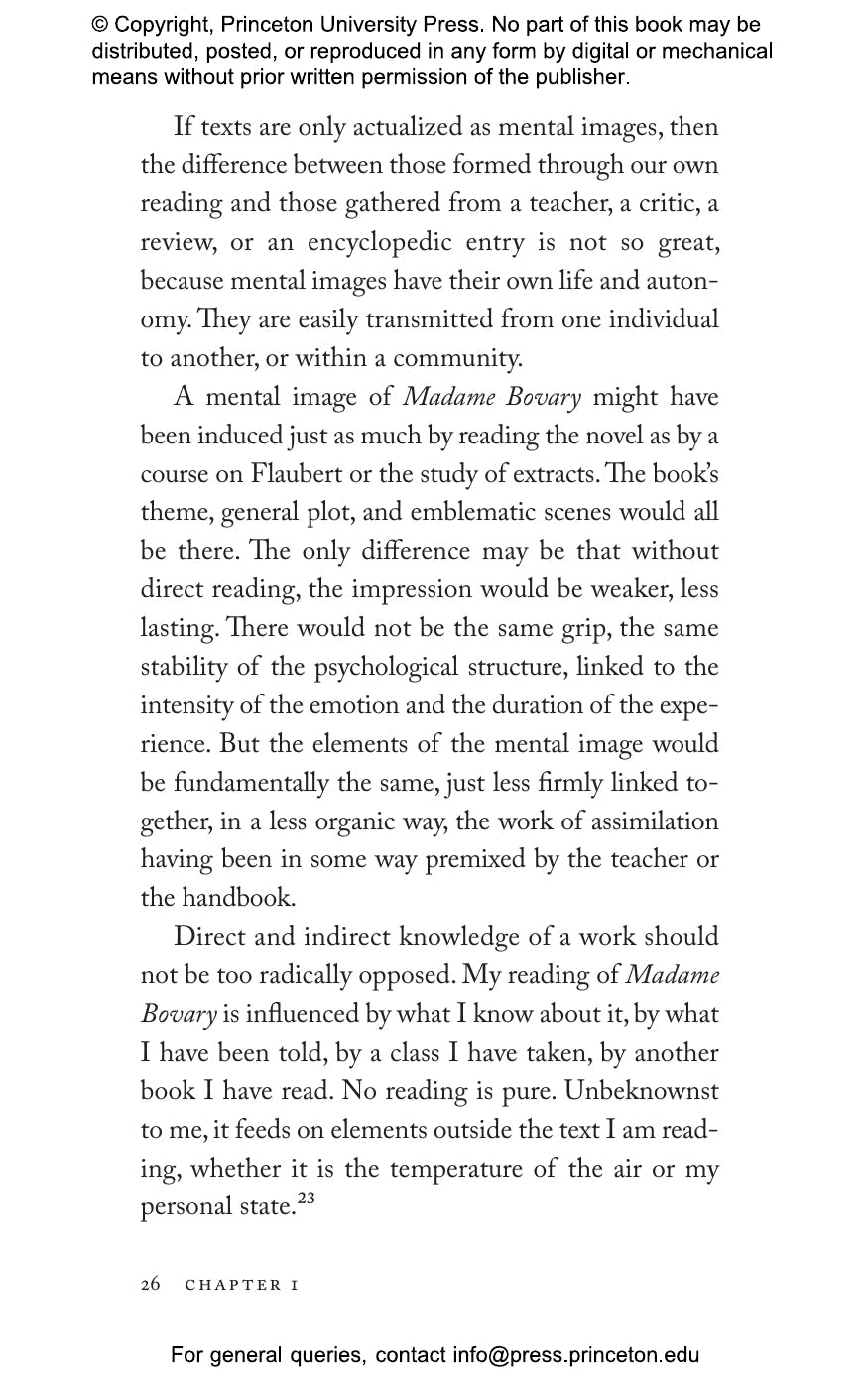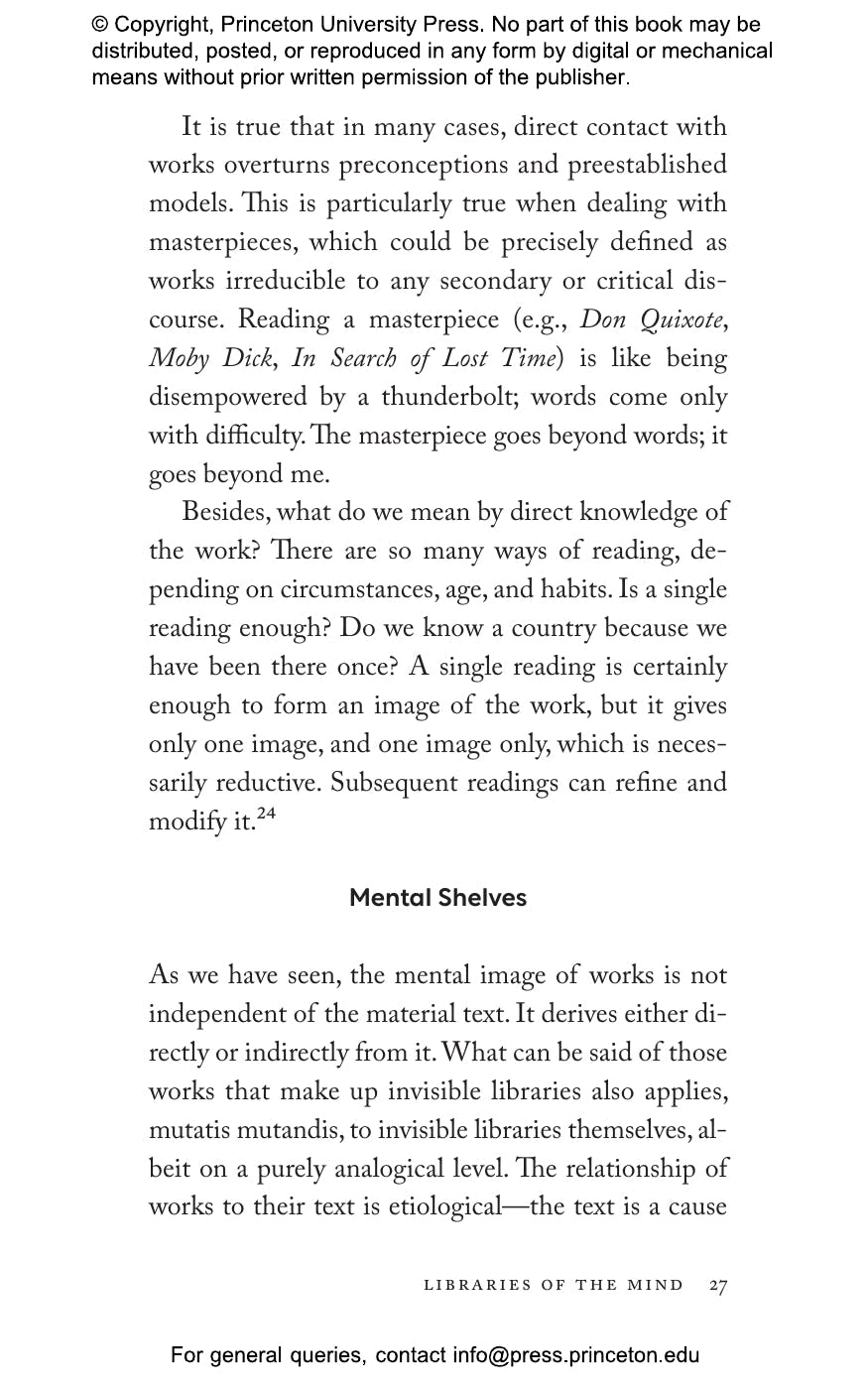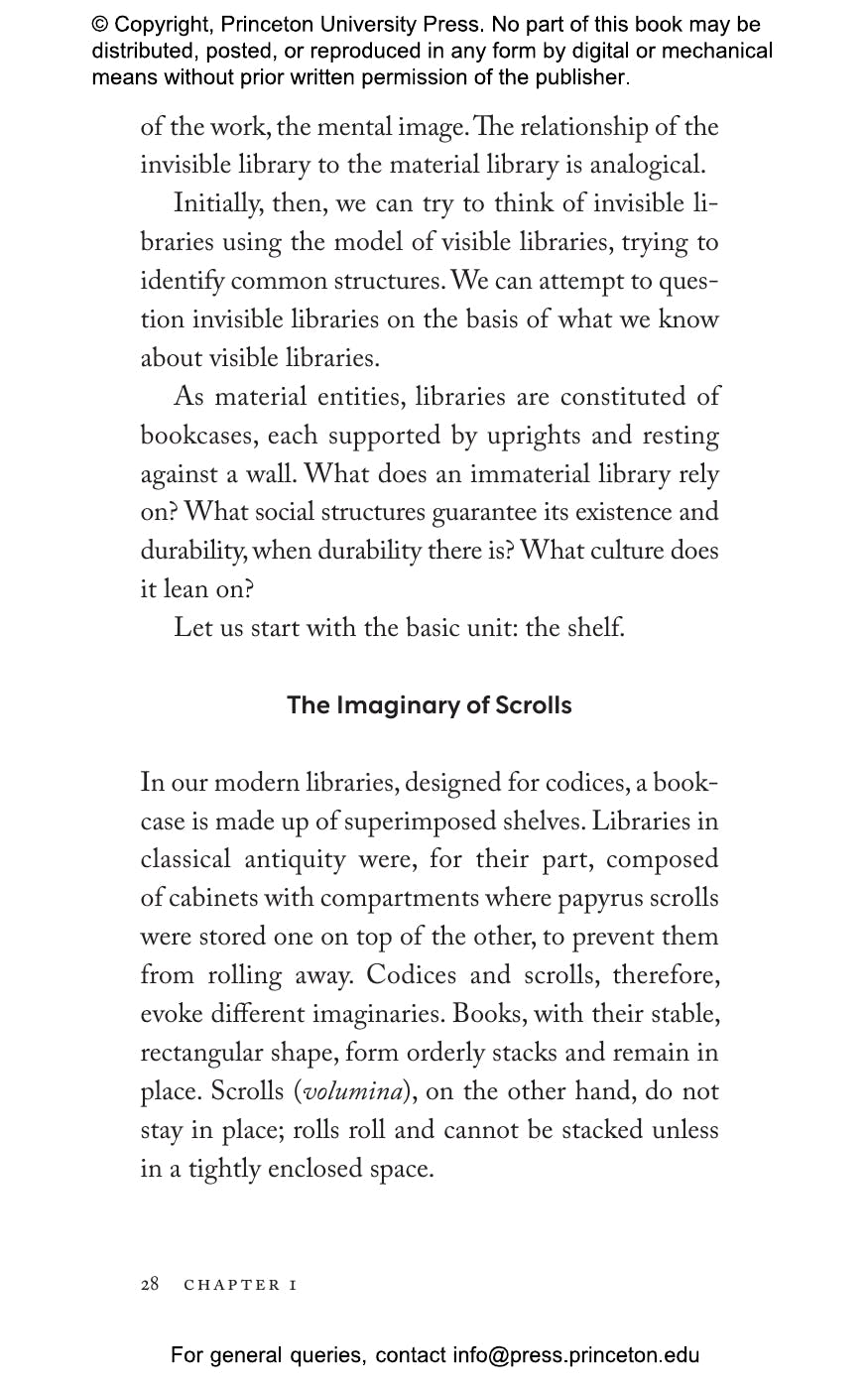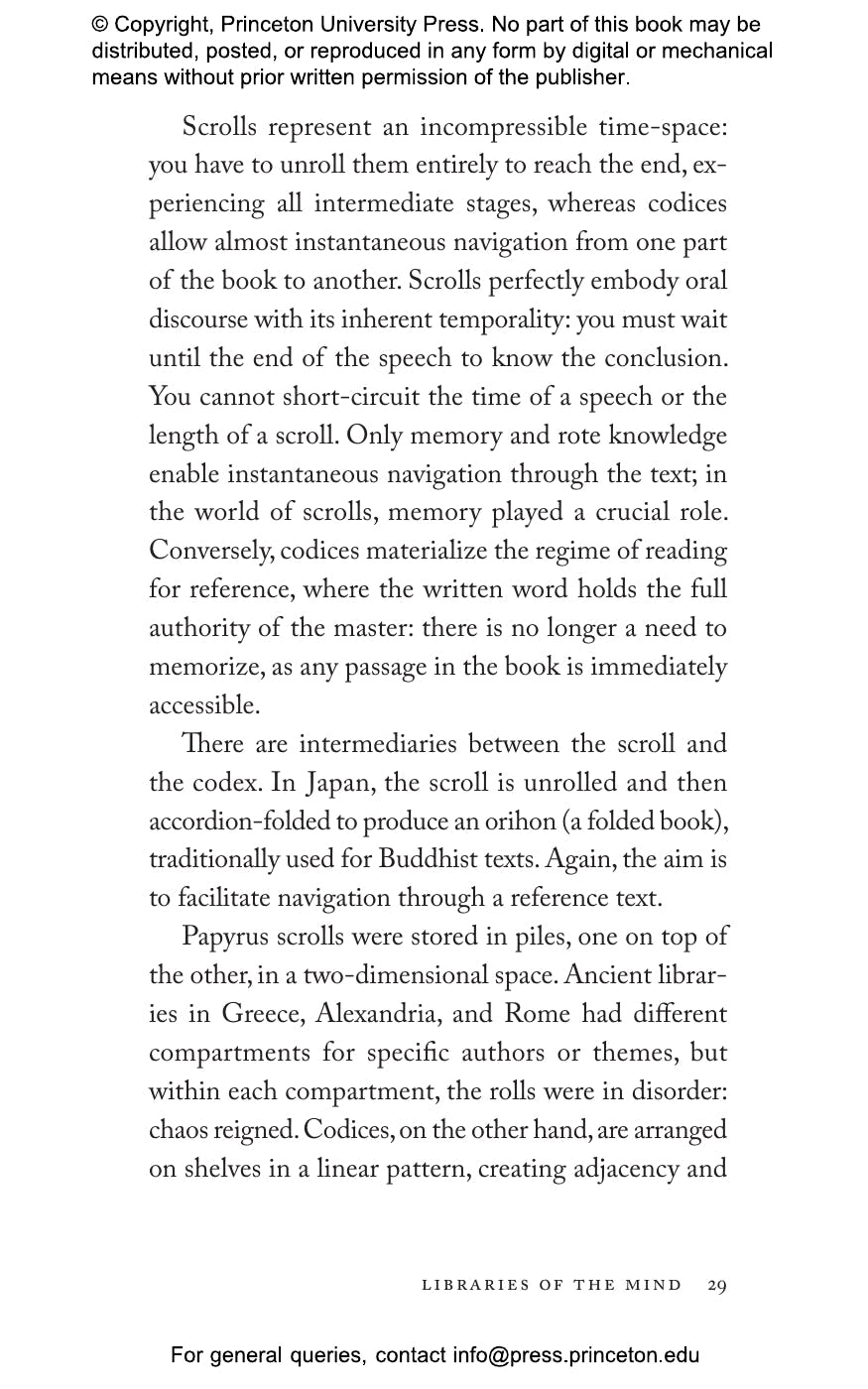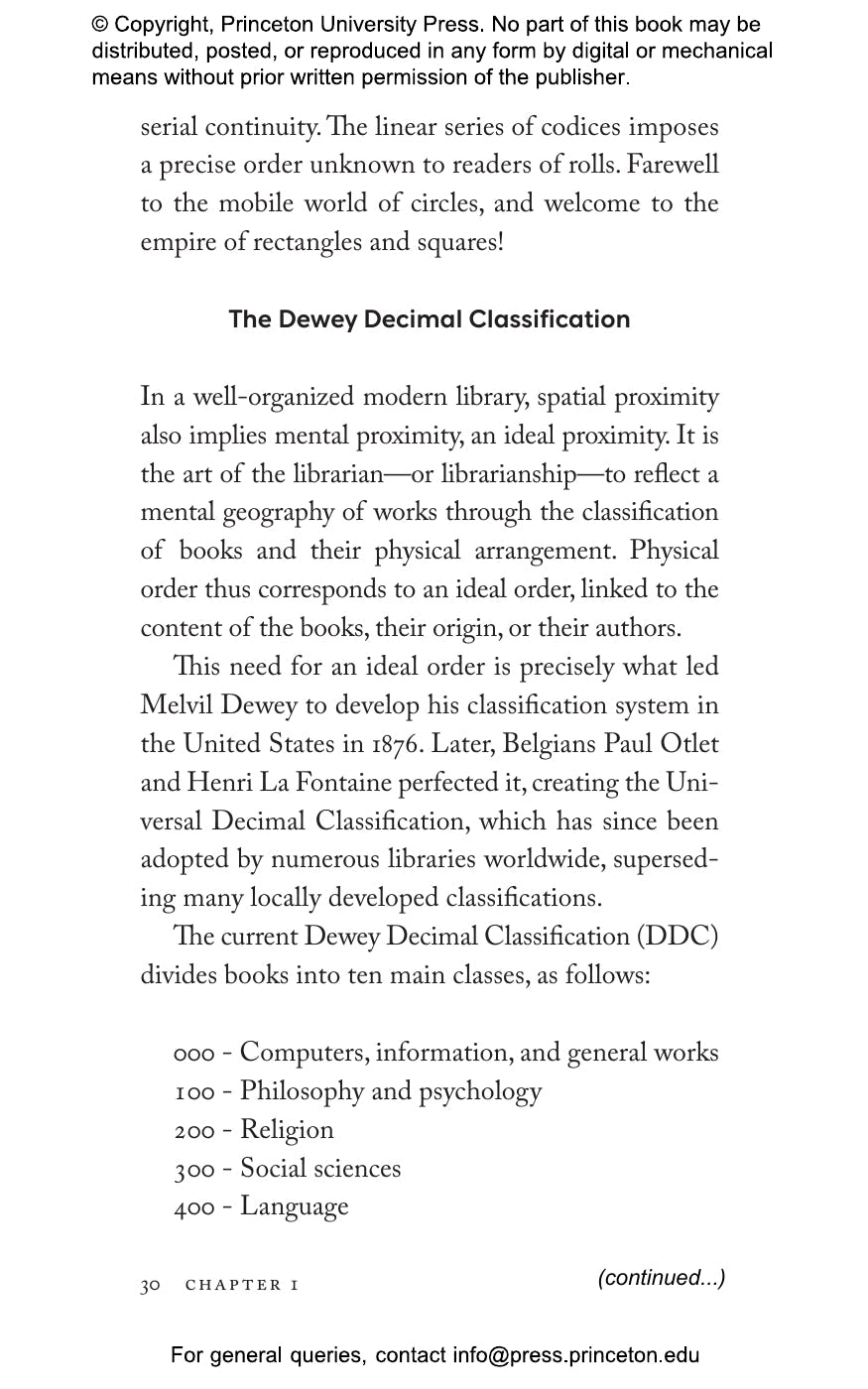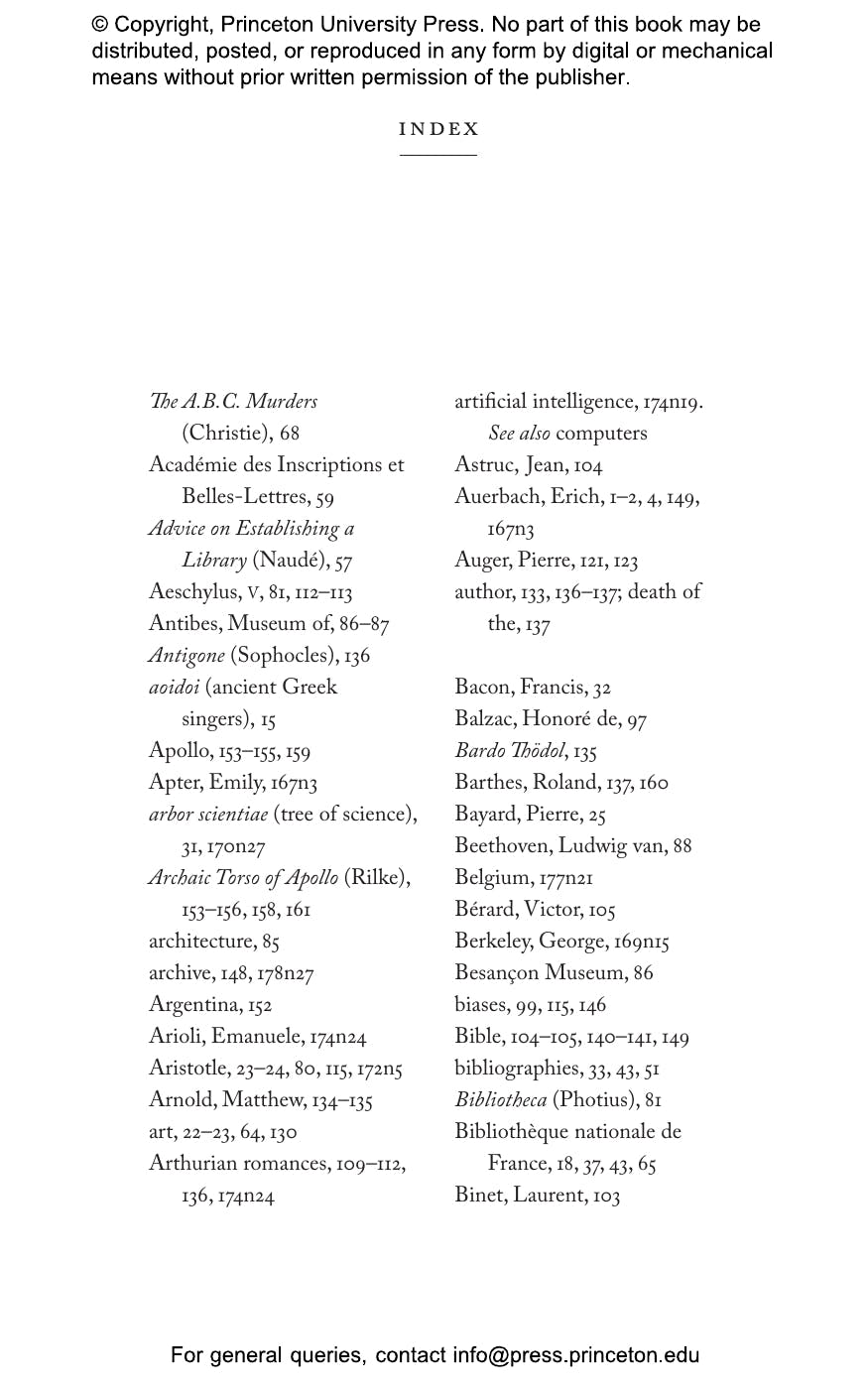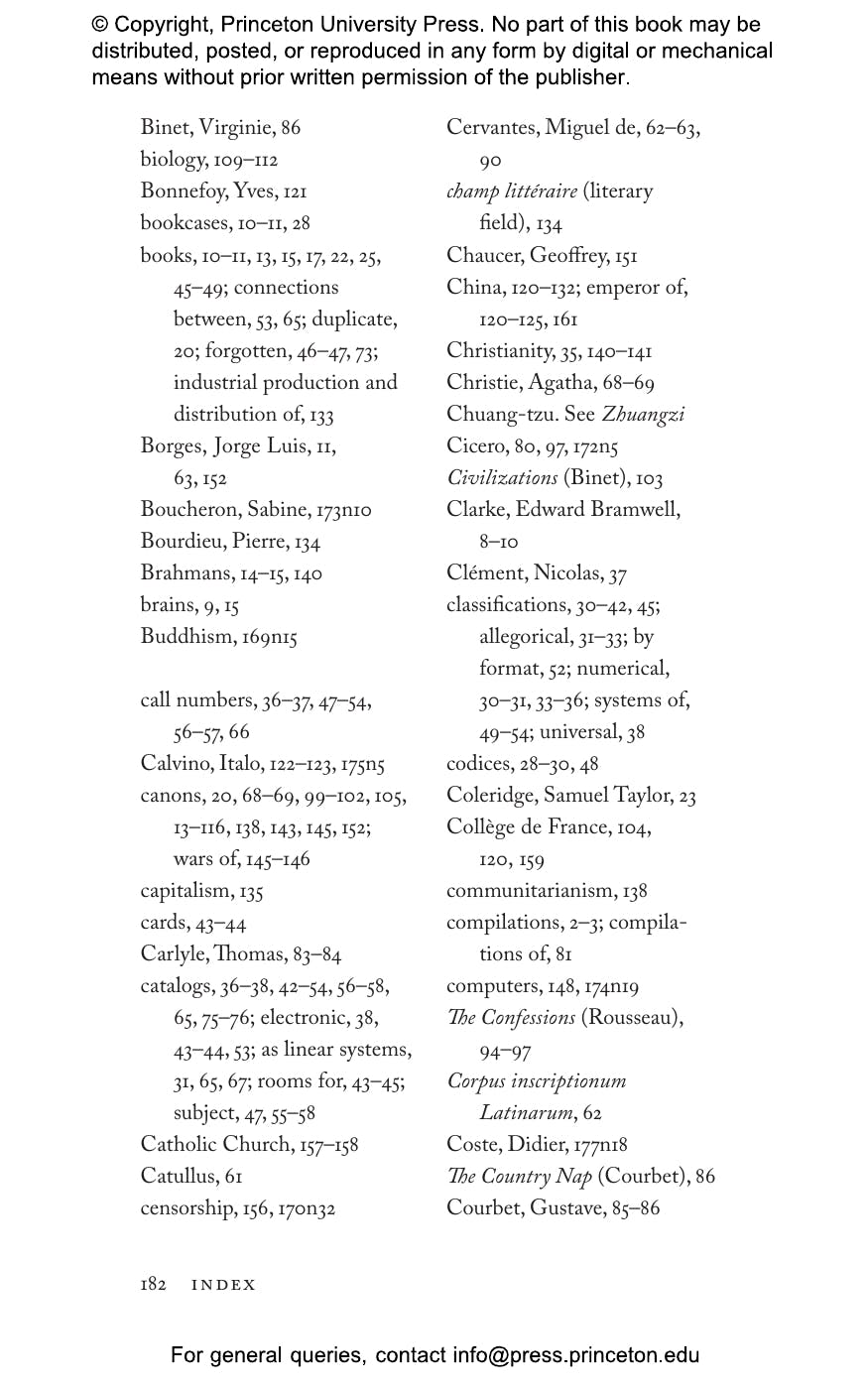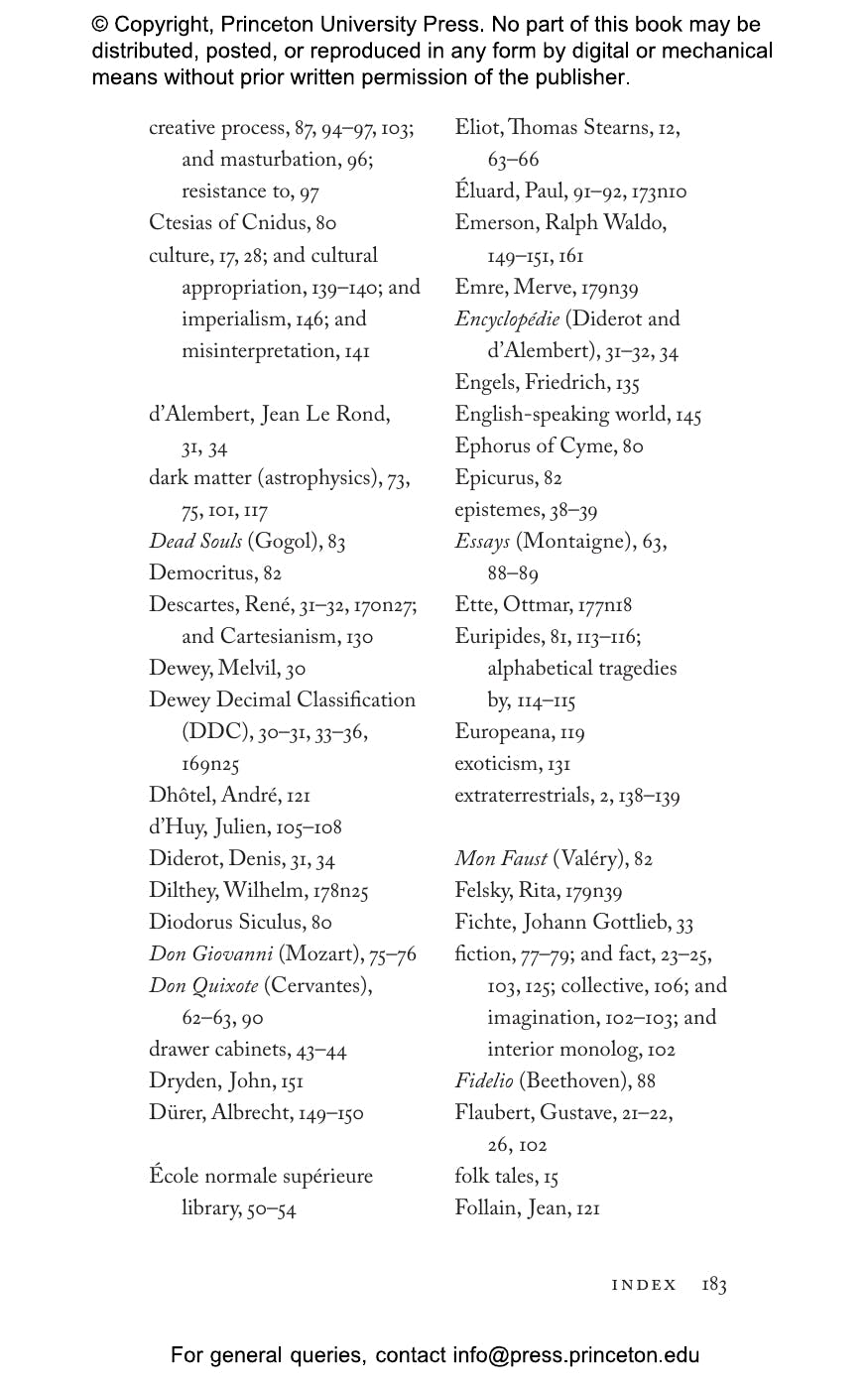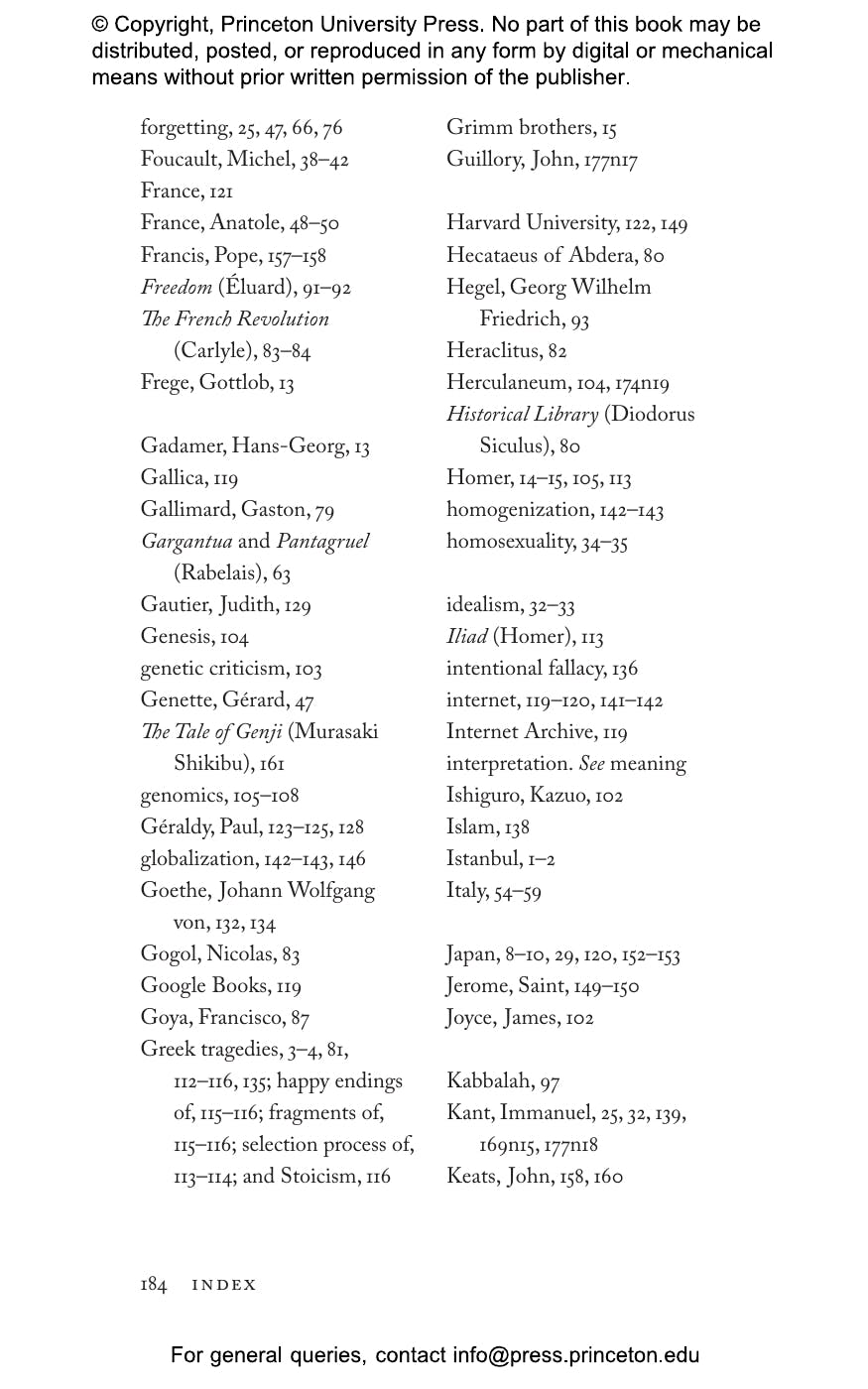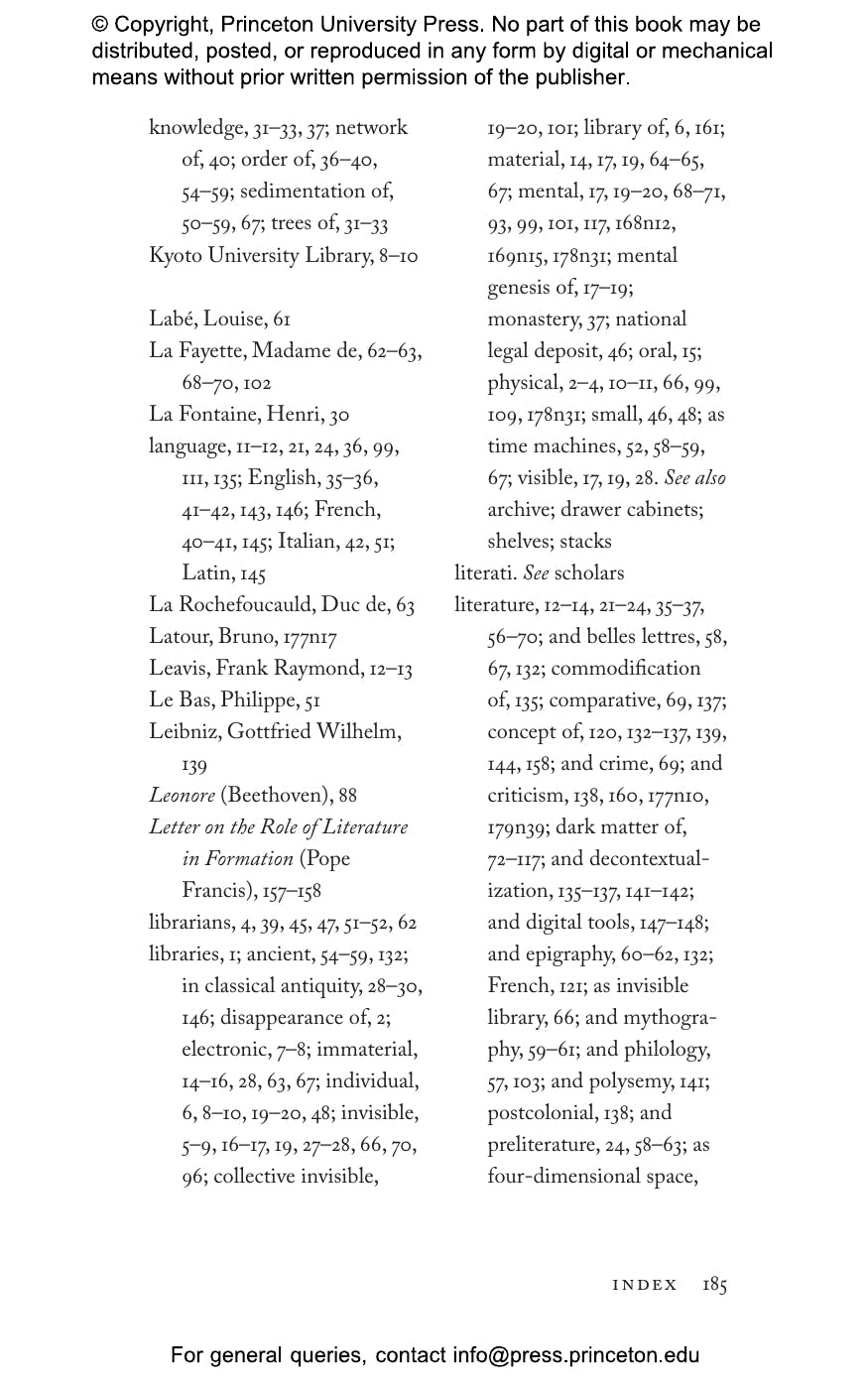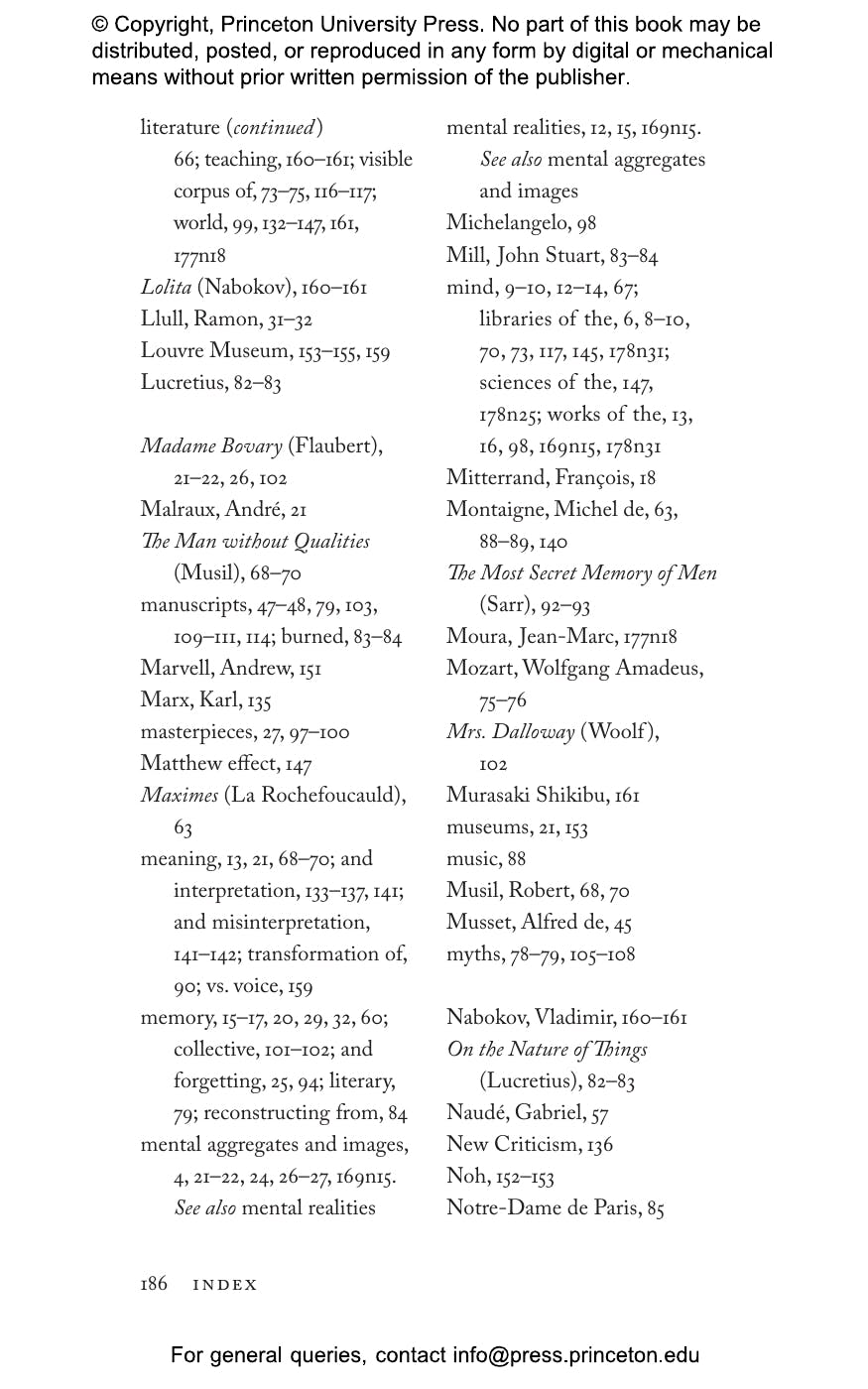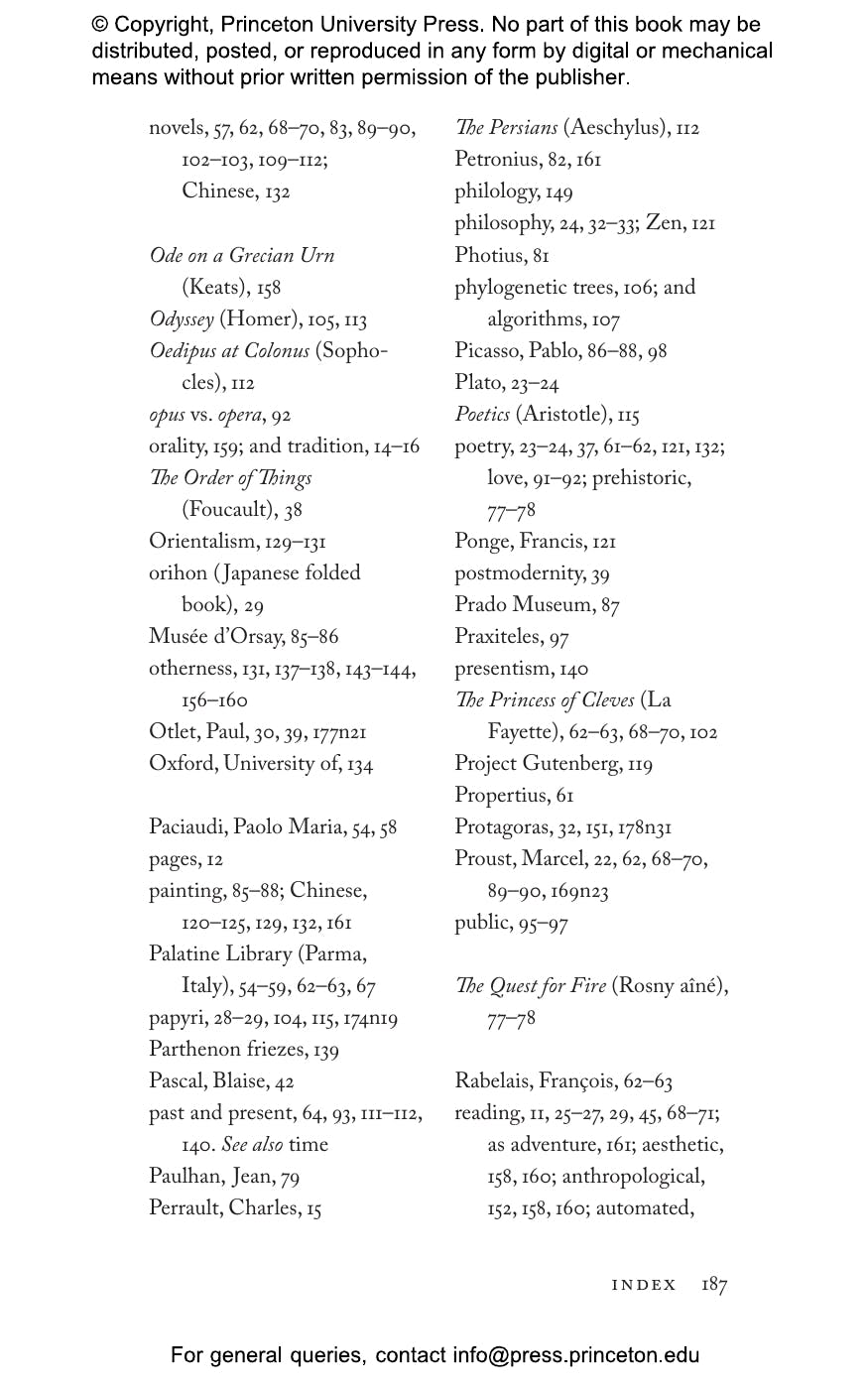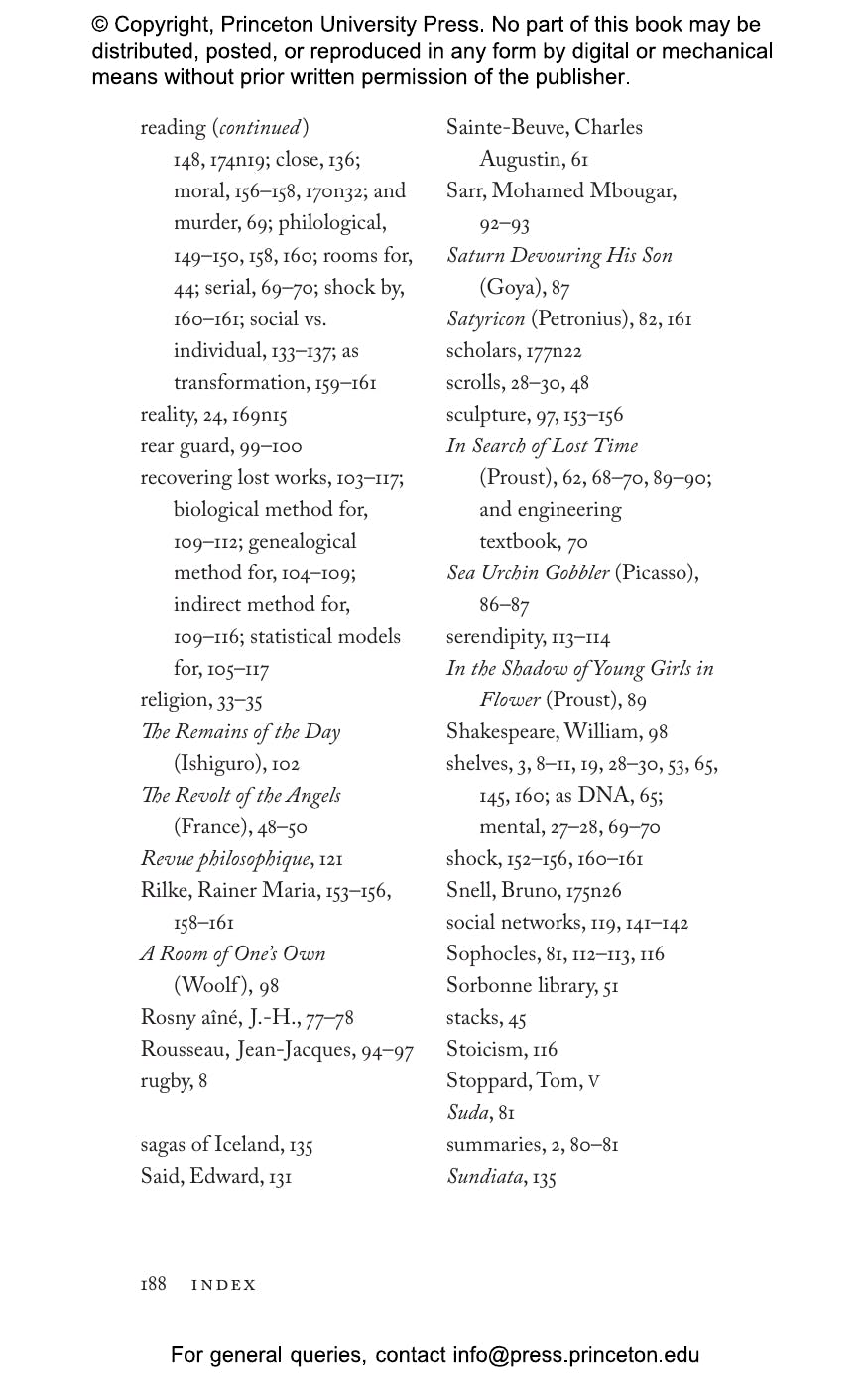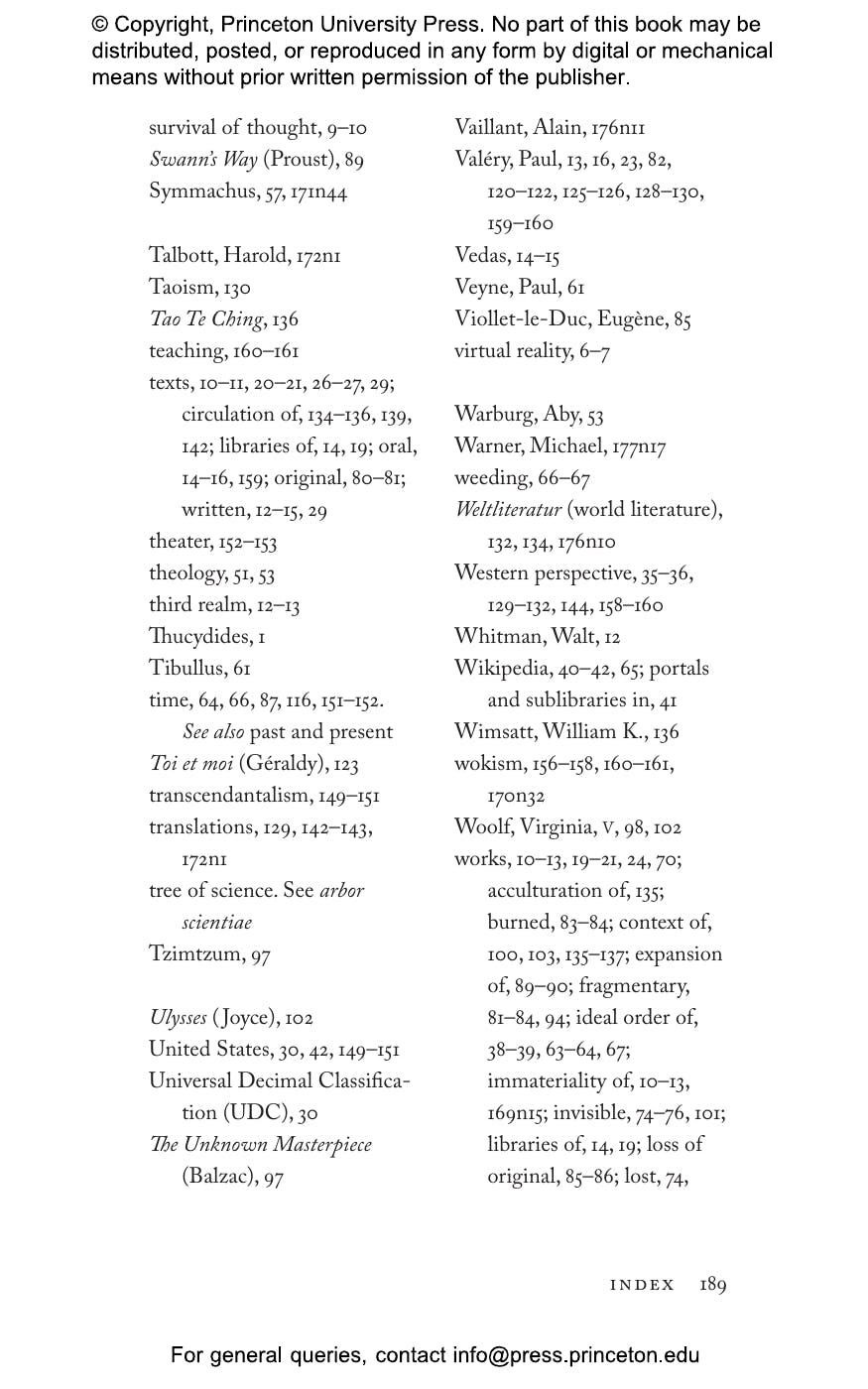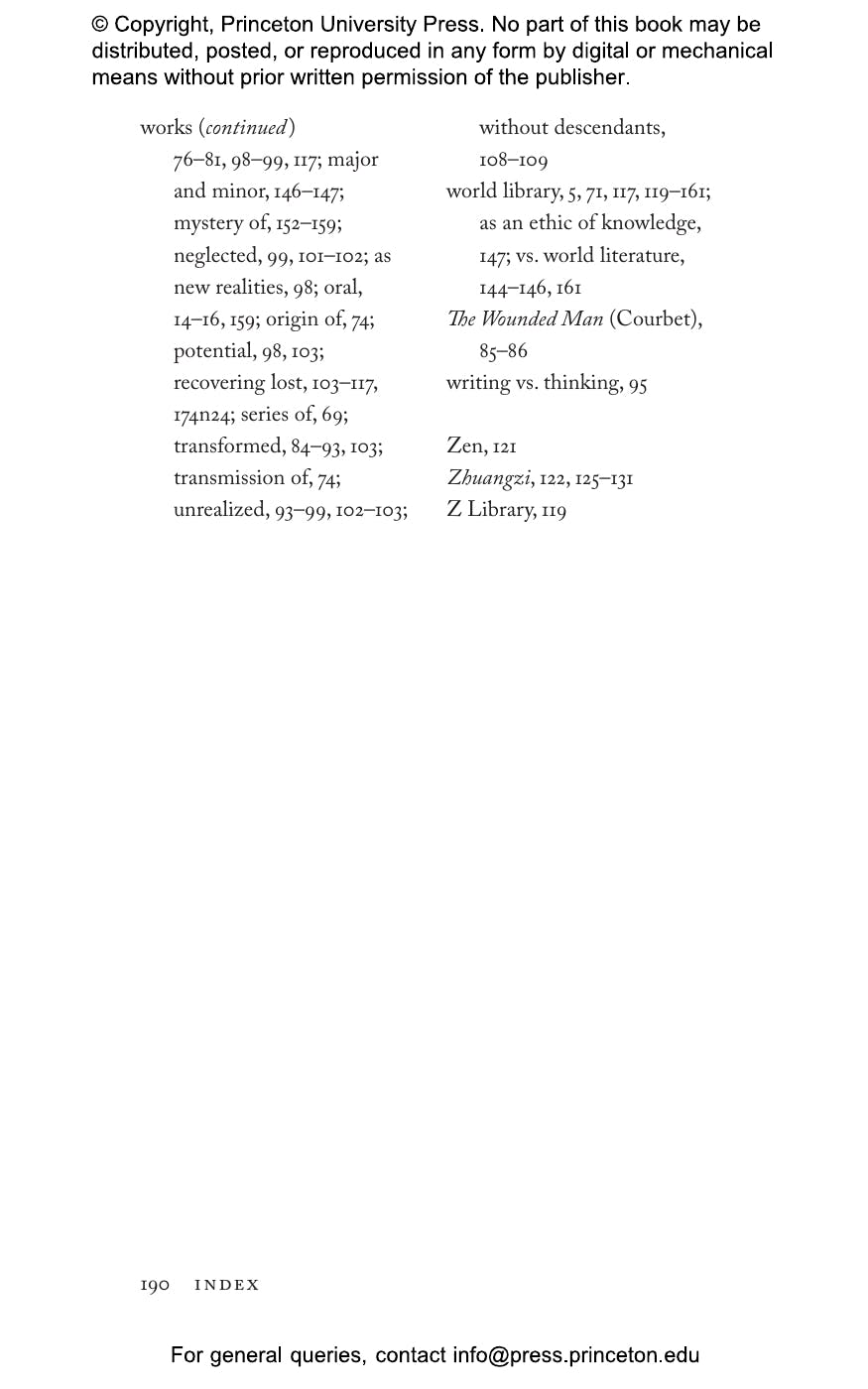Erich Auerbach wrote his classic work Mimesis, a history of narrative from Homer to Proust, based largely on his memory of past reading. Having left his physical library behind when he fled to Istanbul to escape the Nazis, he was forced to rely on the invisible library of his mind. Each of us has such a library—if not as extensive as Auerbach’s—even if we are unaware of it. In this erudite and provocative book, William Marx explores our invisible libraries—how we build them and how we should expand them.
Libraries, Marx tells us, are mental realities, and, conversely, our minds are libraries. We never read books apart from other texts. We take them from mental shelves filled with a variety of works that help us understand what we are reading. And yet the libraries in our mind are not always what they should be. The selection on our mental shelves—often referred to as canon, heritage, patrimony, or tradition—needs to be modified and expanded. Our intangible libraries should incorporate what Marx calls the dark matter of literature: the works that have been lost, that exist only in fragments, that have been repurposed by their authors, or were never written in the first place. Marx suggests methods for recovering this missing literature, but he also warns us that adding new titles to our libraries is not enough. We must also adopt a new attitude, one that honors the diversity and otherness of literary works. We must shed our preconceptions and build within ourselves a mental world library.
William Marx is professor of comparative literature at the Collège de France. He is the author of The Hatred of Literature, The Tomb of Oedipus: Why Greek Tragedies Were Not Tragic, and other books.
33910
"Renew that library card. This deftly written book reflects on the history of how we organize knowledge, classify books, and give meaning to our lives through reading. . . . An eloquent plea for reading by a true scholar of world literature."—Kirkus Reviews
"Absolutely packed solid with provocative ideas that will . . . offer you new ways of thinking and articulating the way you think of reading and storing what you’ve learned from your adventures with literature."—Terry Potter, The Letterpress Project
"Libraries of our homes and minds can now more easily than ever include literature translated from myriad languages. Such broader reading enhances our capacity for valuing beauty and wonder not only in literature but in the world all around. Awareness of this reality—that there are many more beautiful books than we could ever read—perhaps heightens the pressure to read well and choose wisely. But in the age of AI and everything digital, it is also a beautiful reminder that to read is human."—Nadya Williams, Providence
“This elegant and thought-provoking rumination on libraries pays tribute to literature that has been lost—or that was never written in the first place. The result is a sustained meditation on absence. At the same time, Marx skillfully conjures, from the fragments that have survived, rich imaginary libraries. This is literary criticism in the tradition of Borges and Calvino.”—Martin Puchner, author of Culture: The Story of Us, from Cave Art to K-Pop
“In Libraries of the Mind, the outstanding French literary critic and historian William Marx reflects on the collections of literary works that tradition, education, and individual lovers of literature keep together within invisible libraries. As repositories of cultural memory, these libraries also hint at what Marx provocatively calls the ‘dark matter’ of lost or forgotten works, e.g., the large number of unavailable yet tantalizing Ancient Greek tragedies. Marx wisely advises us to treasure the countless works that fill up our present-day invisible libraries thanks to modern technology. An eye-opening, fascinating book.”—Thomas Pavel, University of Chicago
This publication has been produced to meet accepted Accessibility standards and contains various accessibility features including concise image descriptions, a table of contents, a page list to navigate to pages corresponding to the print source version, and elements such as headings for structured navigation. Appearance of the text and page layout can be modified according to the capabilities of the reading system.
Accessibility Features
-
WCAG v2.2
-
WCAG level AA
-
Table of contents navigation
-
Single logical reading order
-
Short alternative textual descriptions
-
Print-equivalent page numbering
-
Landmark navigation
-
Index navigation
-
Epub Accessibility Specification 1.1
-
ARIA roles provided
-
All non-decorative content supports reading without sight
-
No known hazards or warnings


